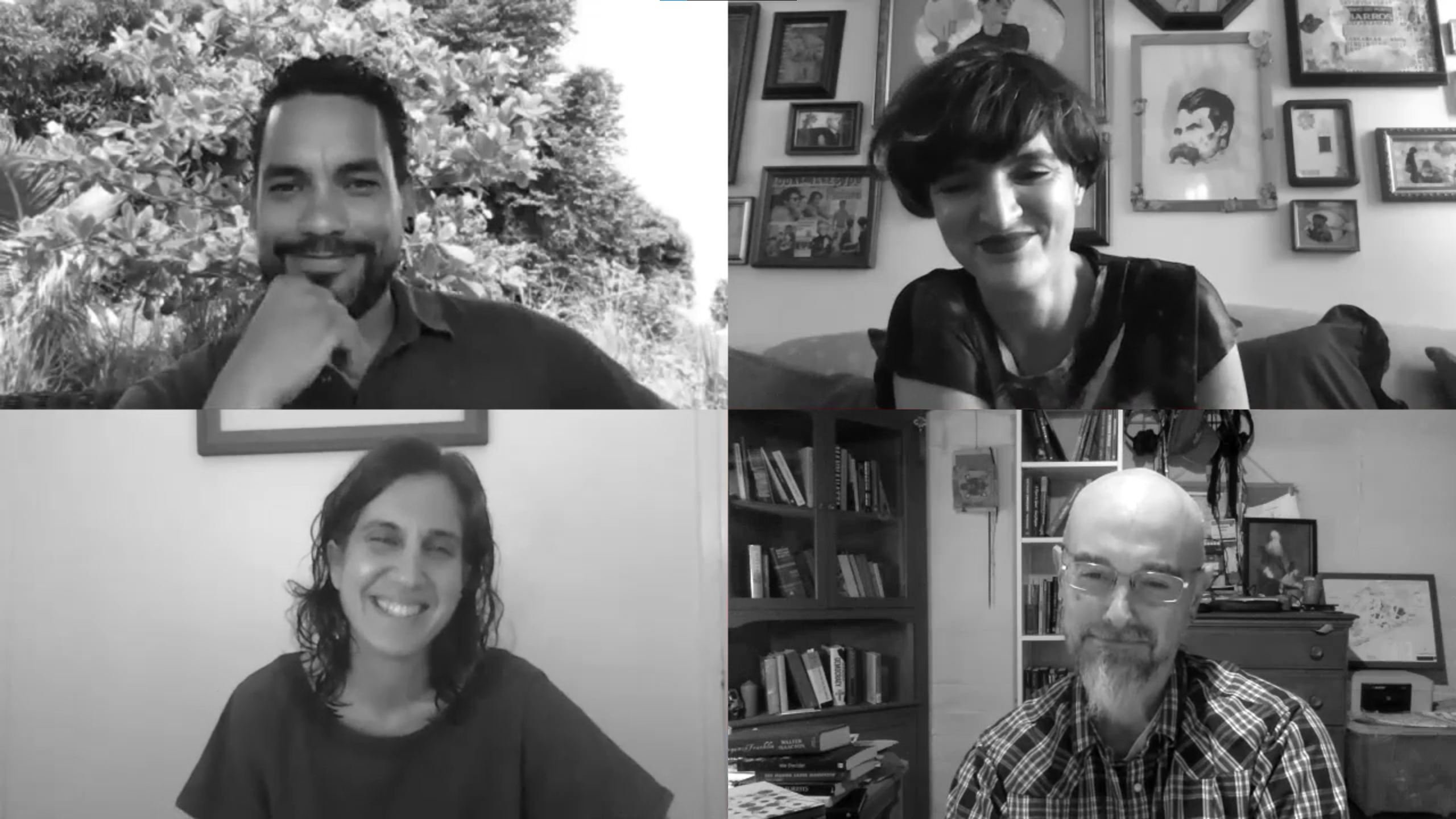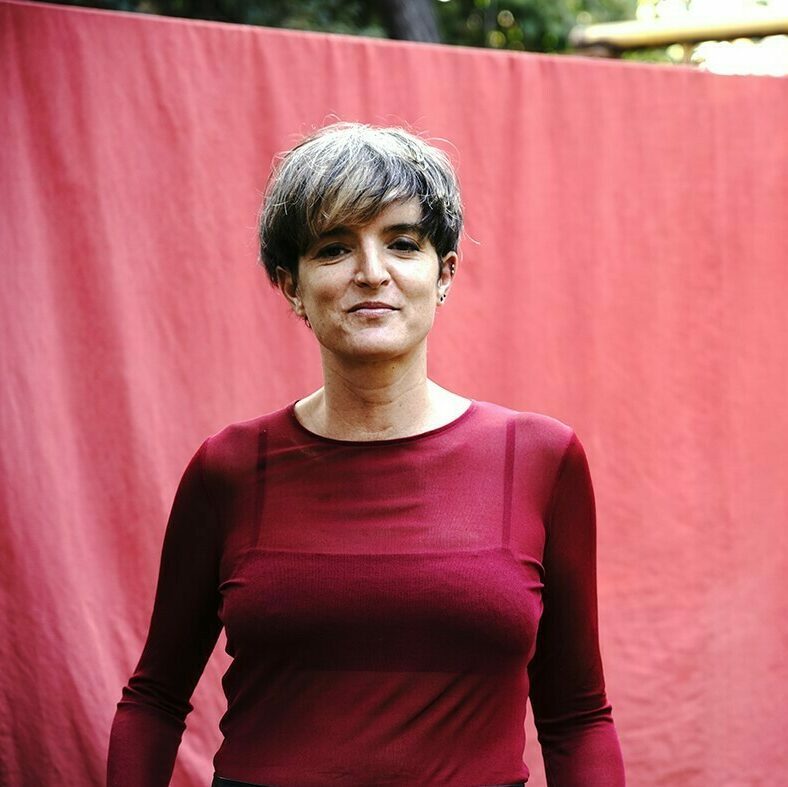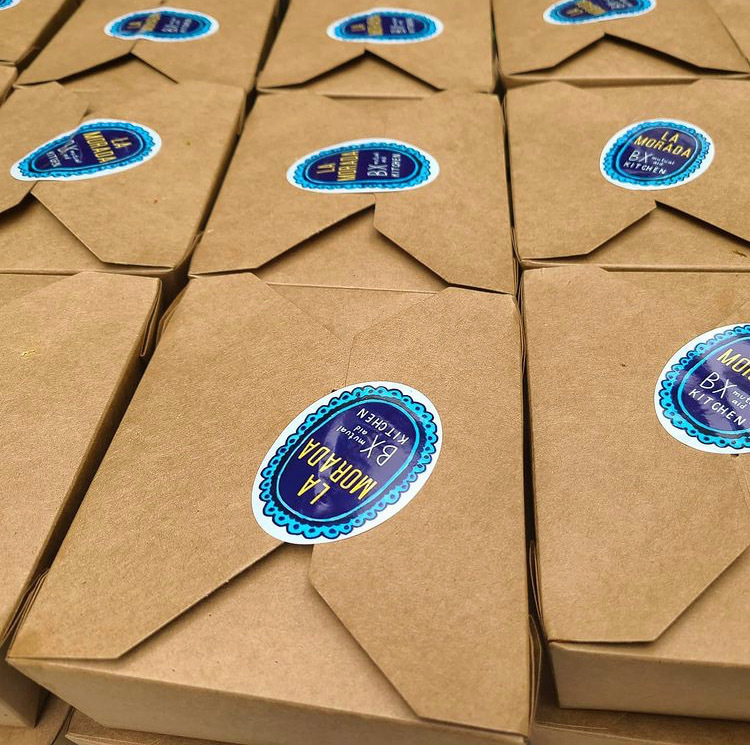All about the squash: sisters of the milpa book launch!
Thu, Feb 9, 2023
6:00 PM–8:00 PM
Elebash Recital Hall. This will be a bilingual event in both English and Spanish with Interpretation provided by Joél De Andrade and Gloria Delgadillo.
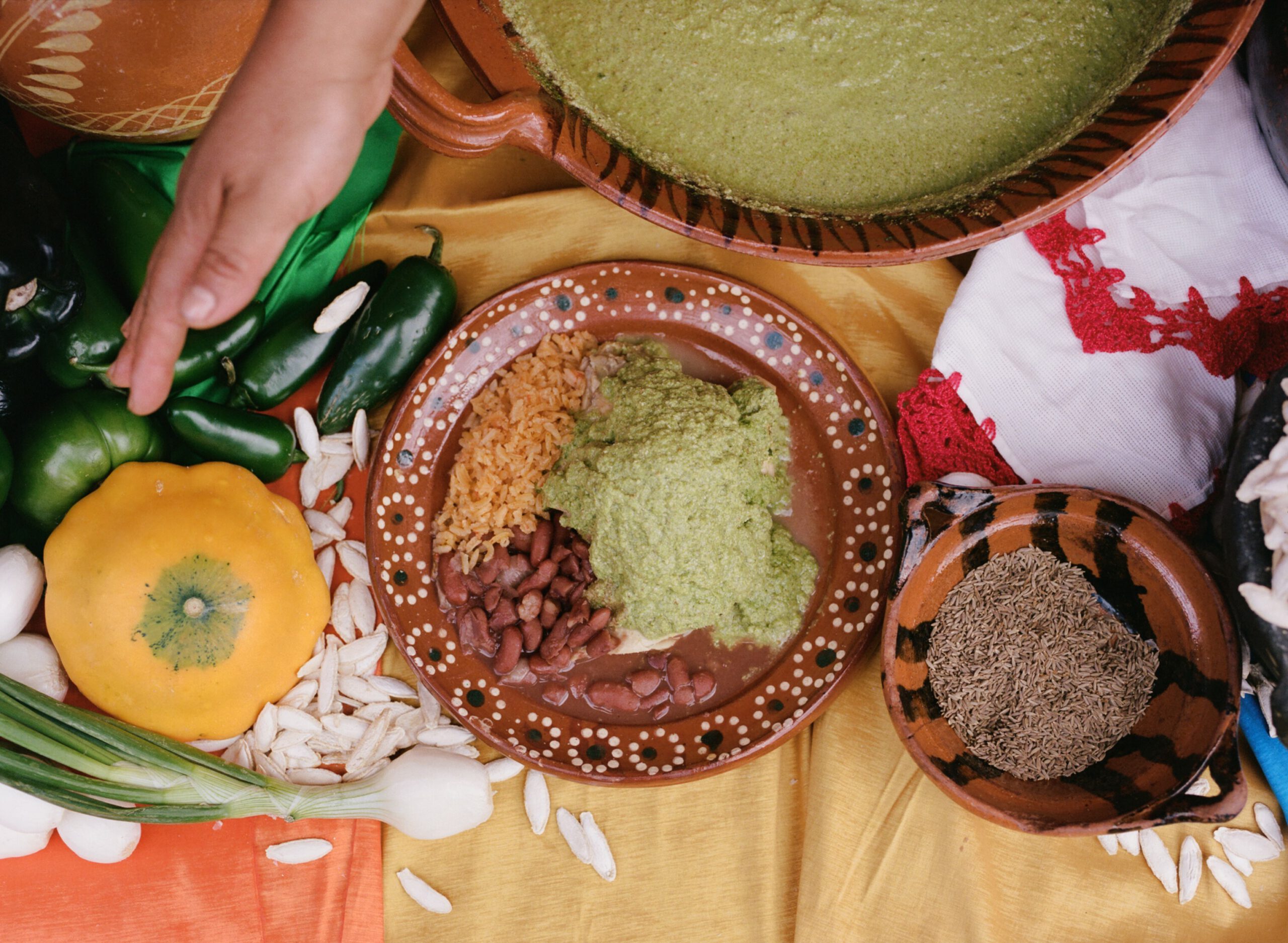
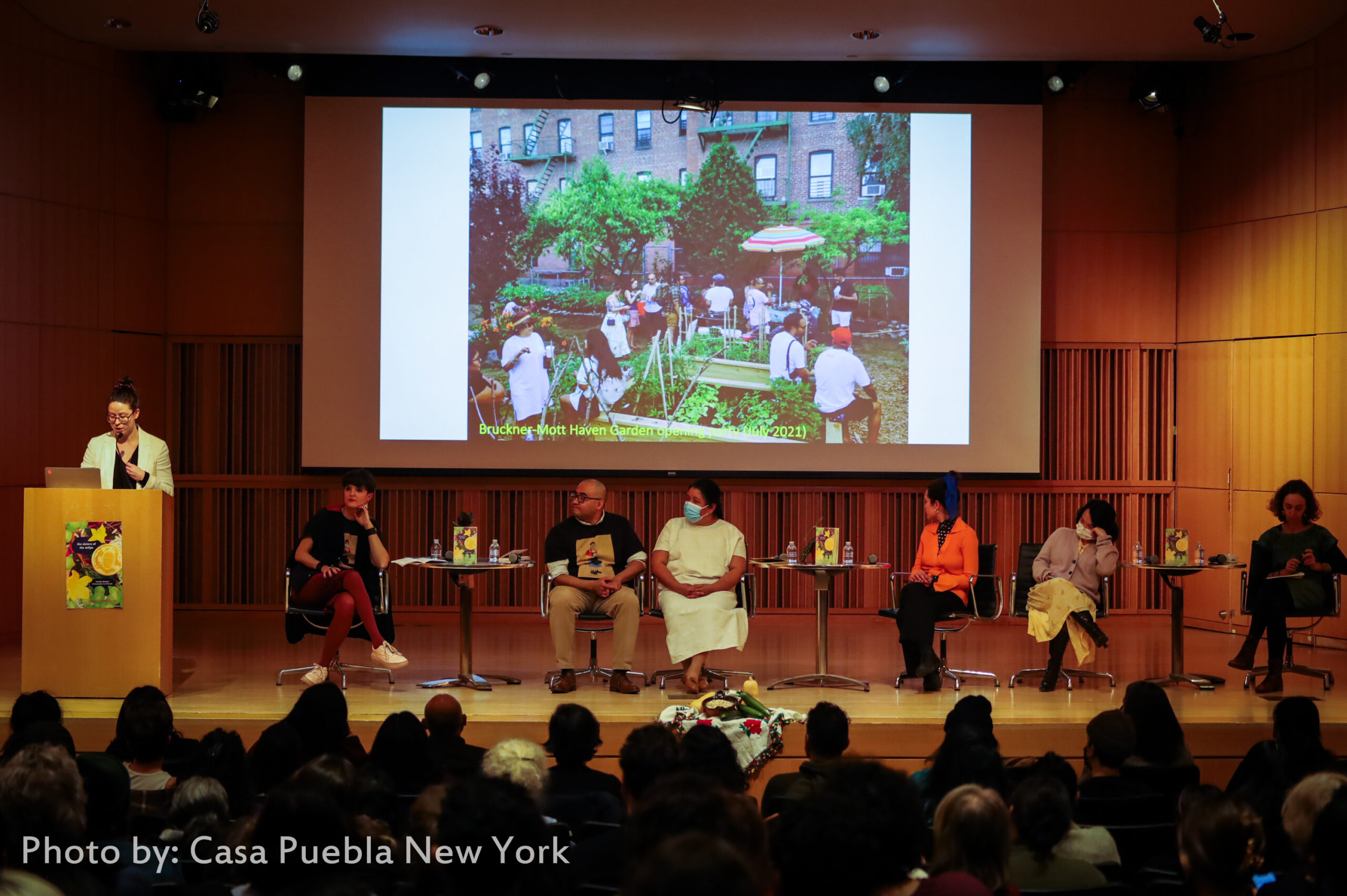
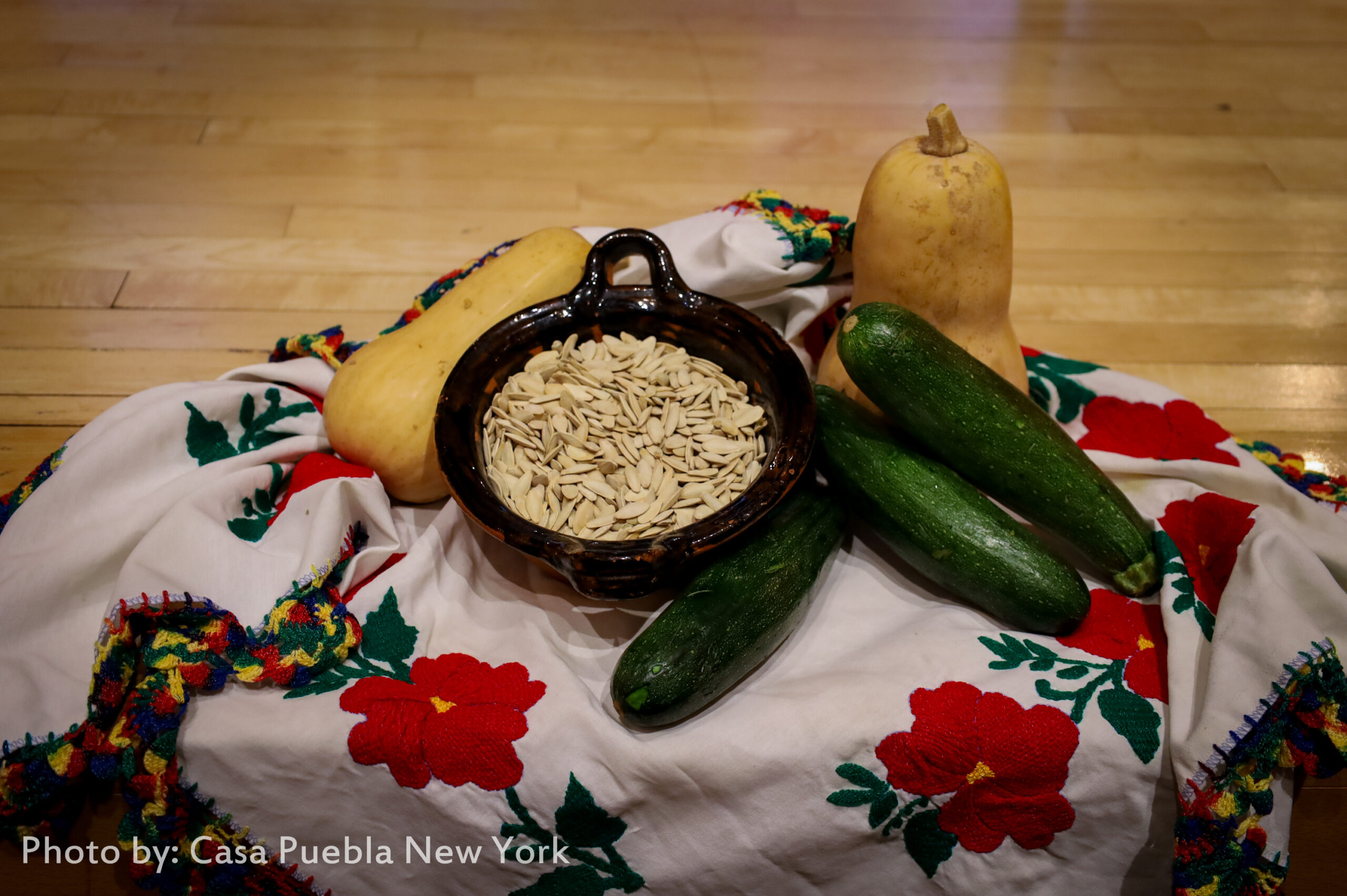
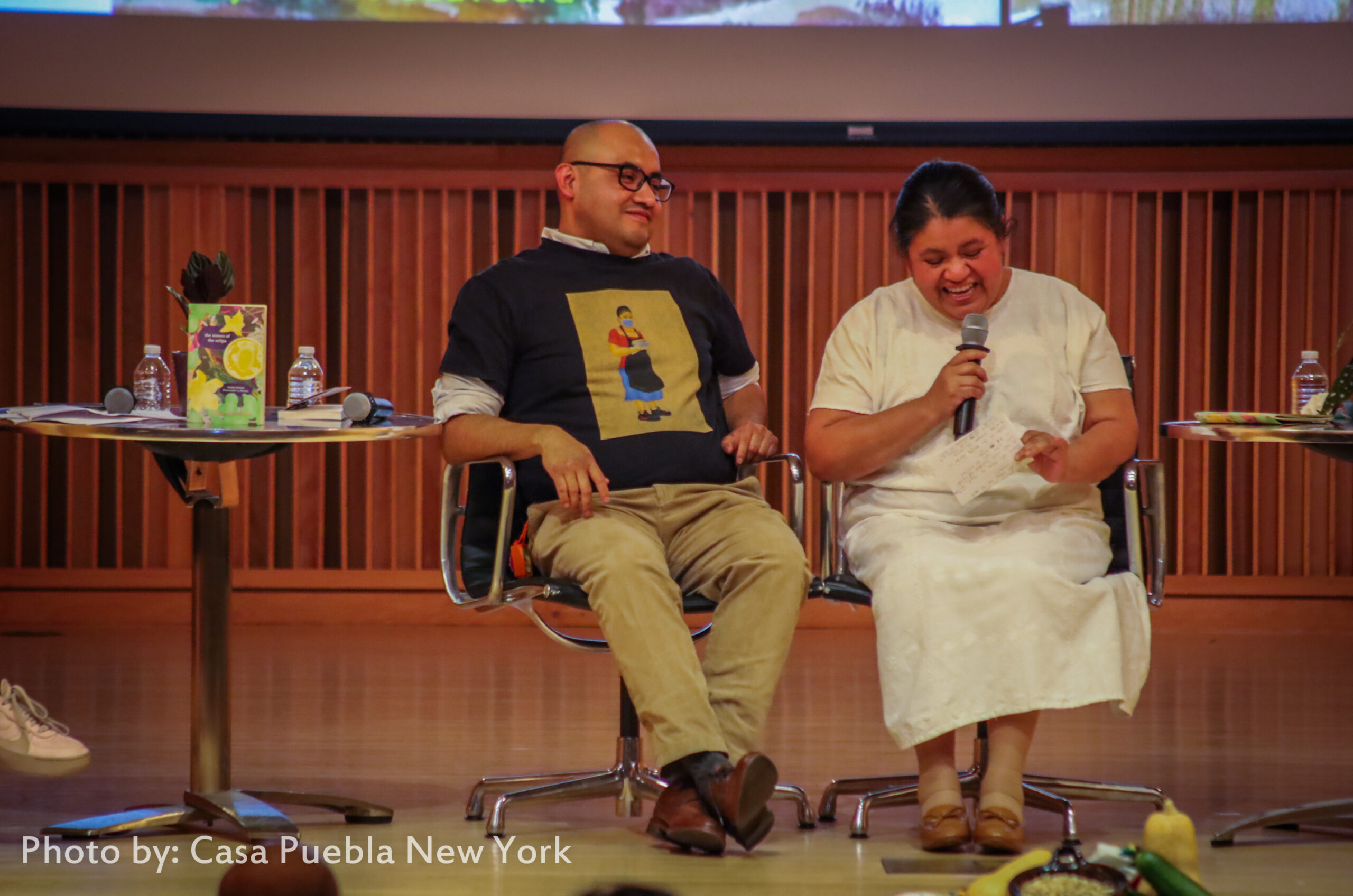
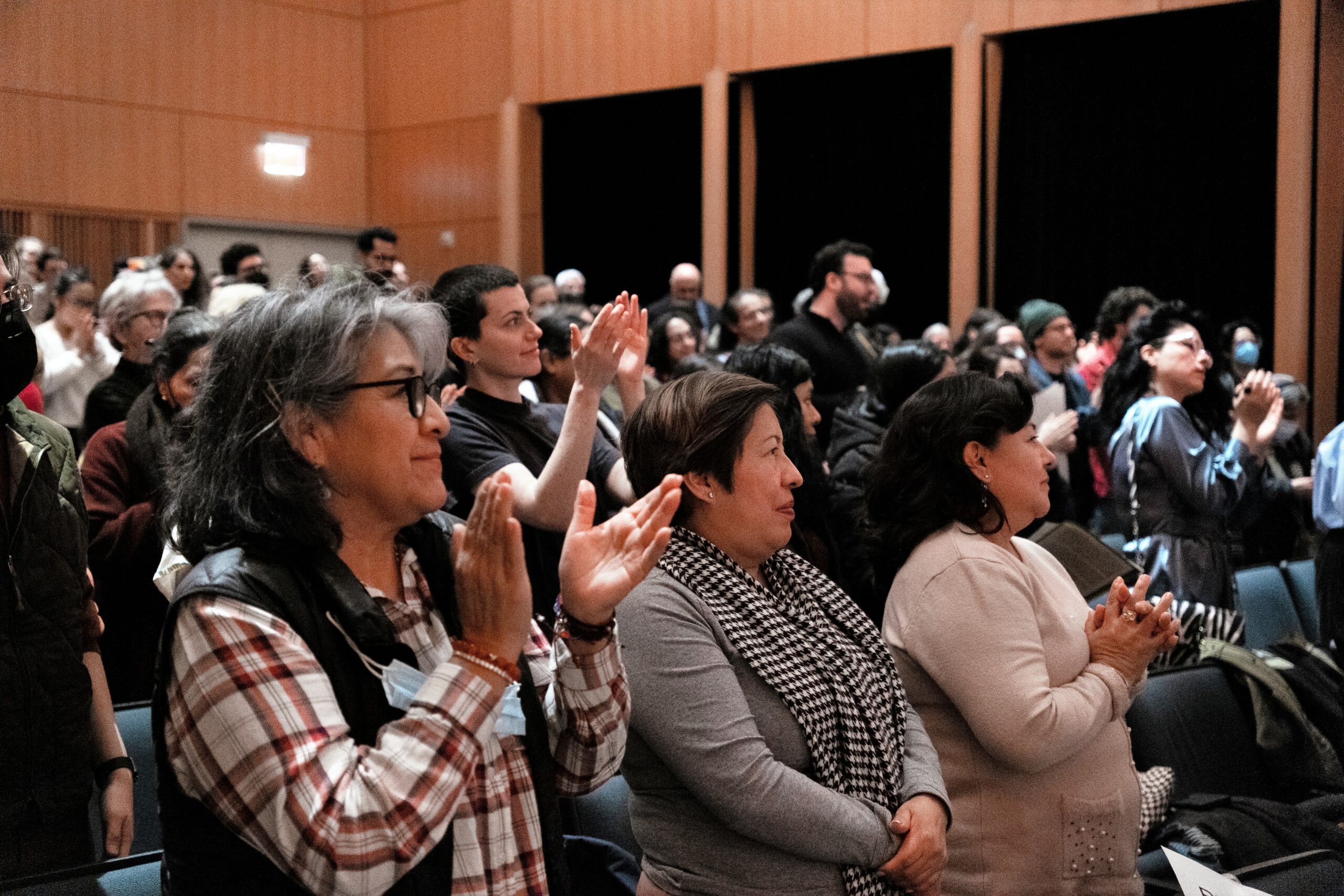
Enjoy more photos from the launch event below and a brief reflection on the occasion, its importance, and the crucial mutual-aid work of La Morada from faculty leader of Archives in Common Ángeles Donoso Macaya:
“I don’t think I exaggerate if I say that what happened last Thursday was special; it surely felt different from every other book launch I have ever attended! To me, at times it felt a bit like being at La Morada, talking, laughing and also crying a bit, being in community. I think the audience was able to see and feel this too. We were all so moved, and also so immensely happy.
Ale Delano said in her remarks, and I couldn’t agree more, that La Morada is much more than a restaurant and Las hermanas de la milpa is much more than a cookbook. And there’s a reason for that: love. I don’t know how many times I heard this word, love, but I clearly remember Natalia talking about the importance of doing things with love, to put love in everything you do. I know people in the audience were able to see and feel that love too, because we felt it afterwards: the love, the gratitude, the joy of those who attended.
Of course, love, gratitude and joy is what I feel every time I set food inside La Morada, my second home in this big city.“
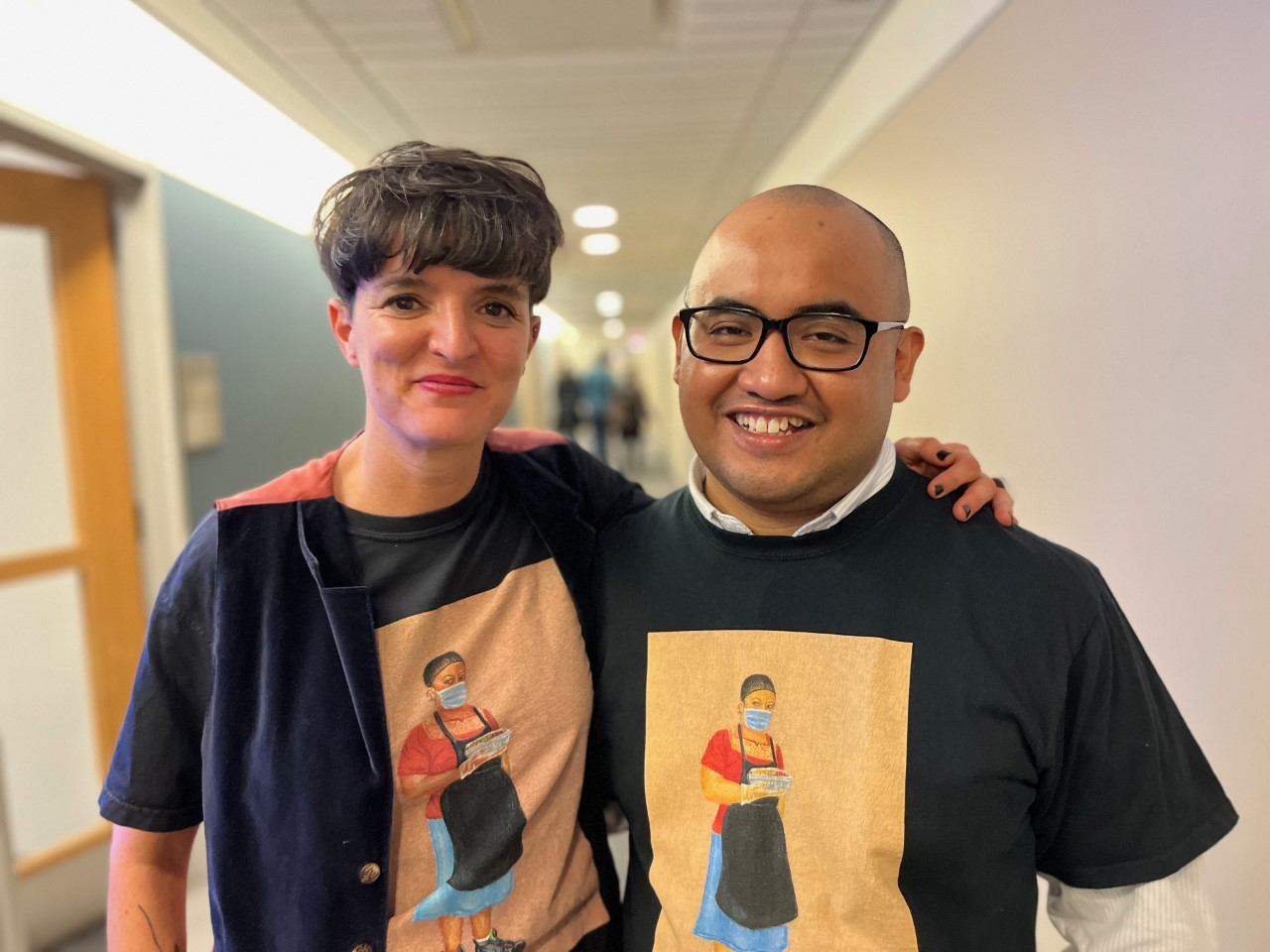
For those who didn’t get a chance to get a copy of the book at the launch, we have a few more copies left which you can order here while supply’s last.
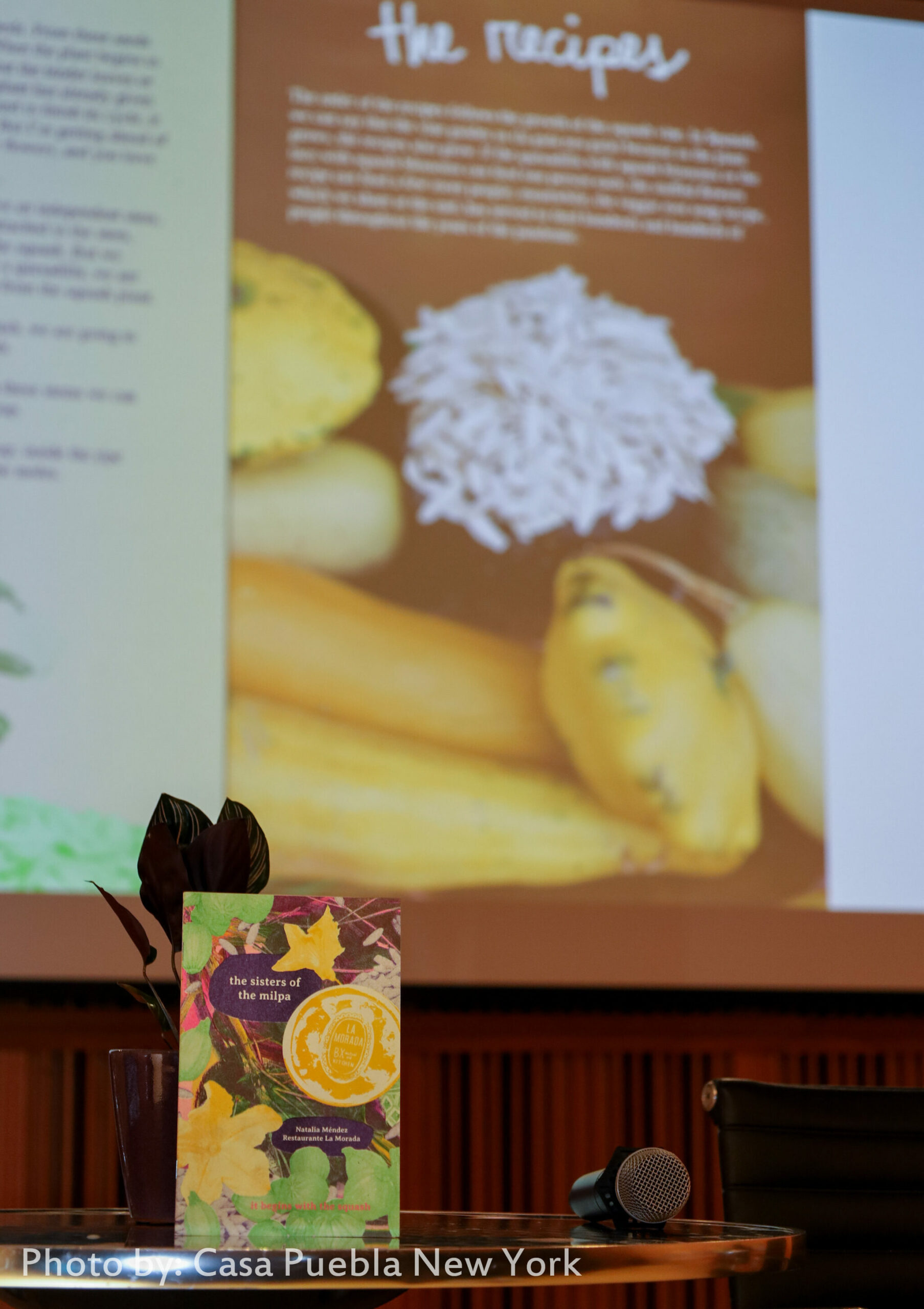
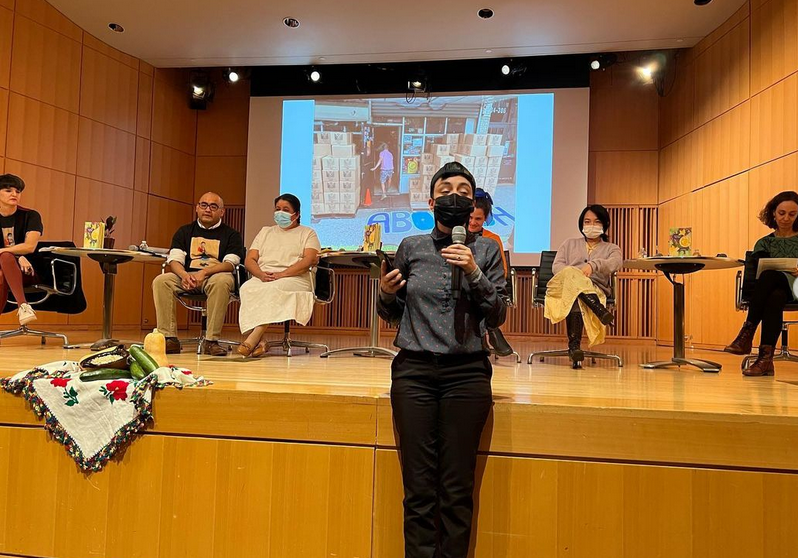
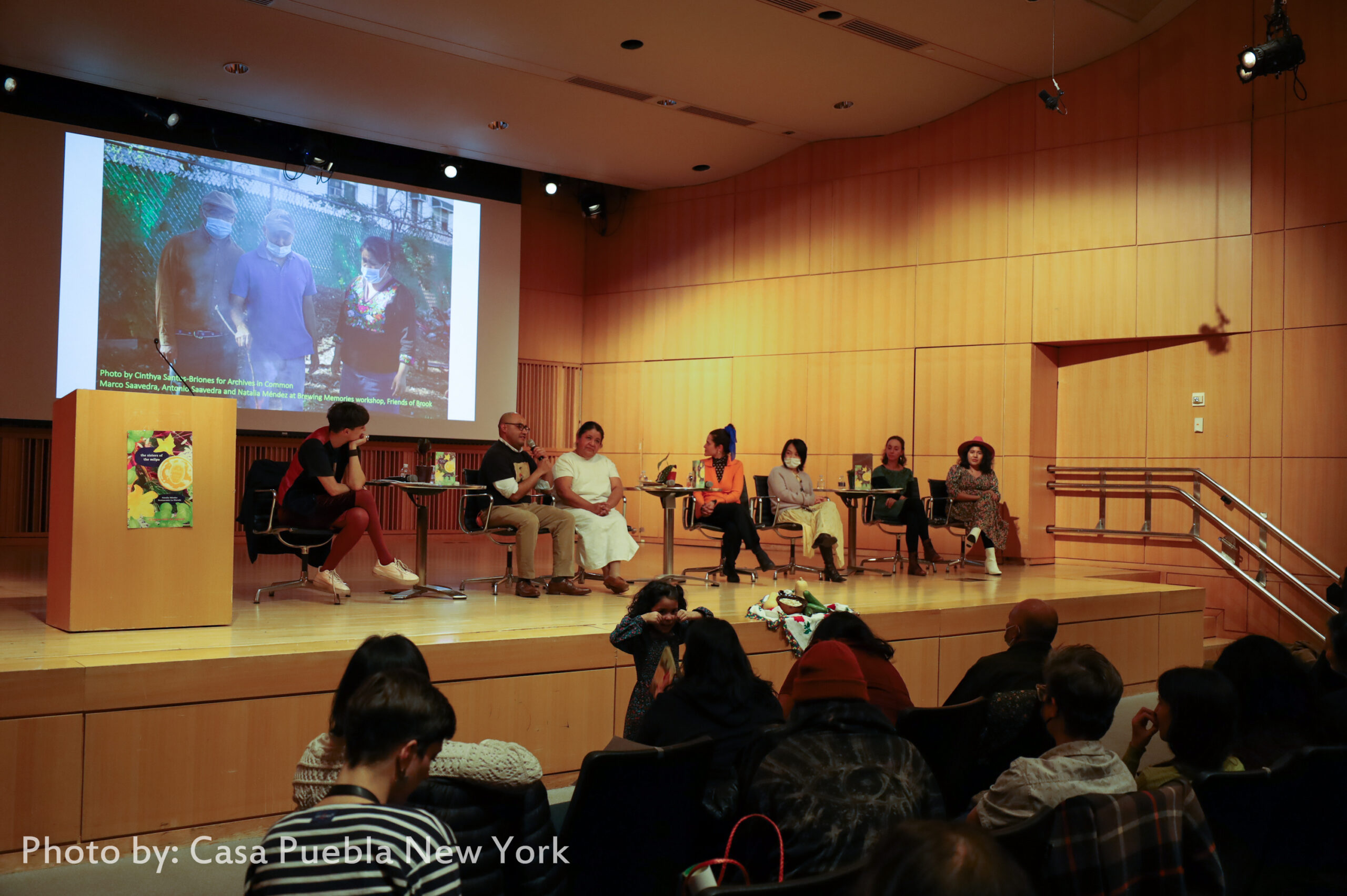
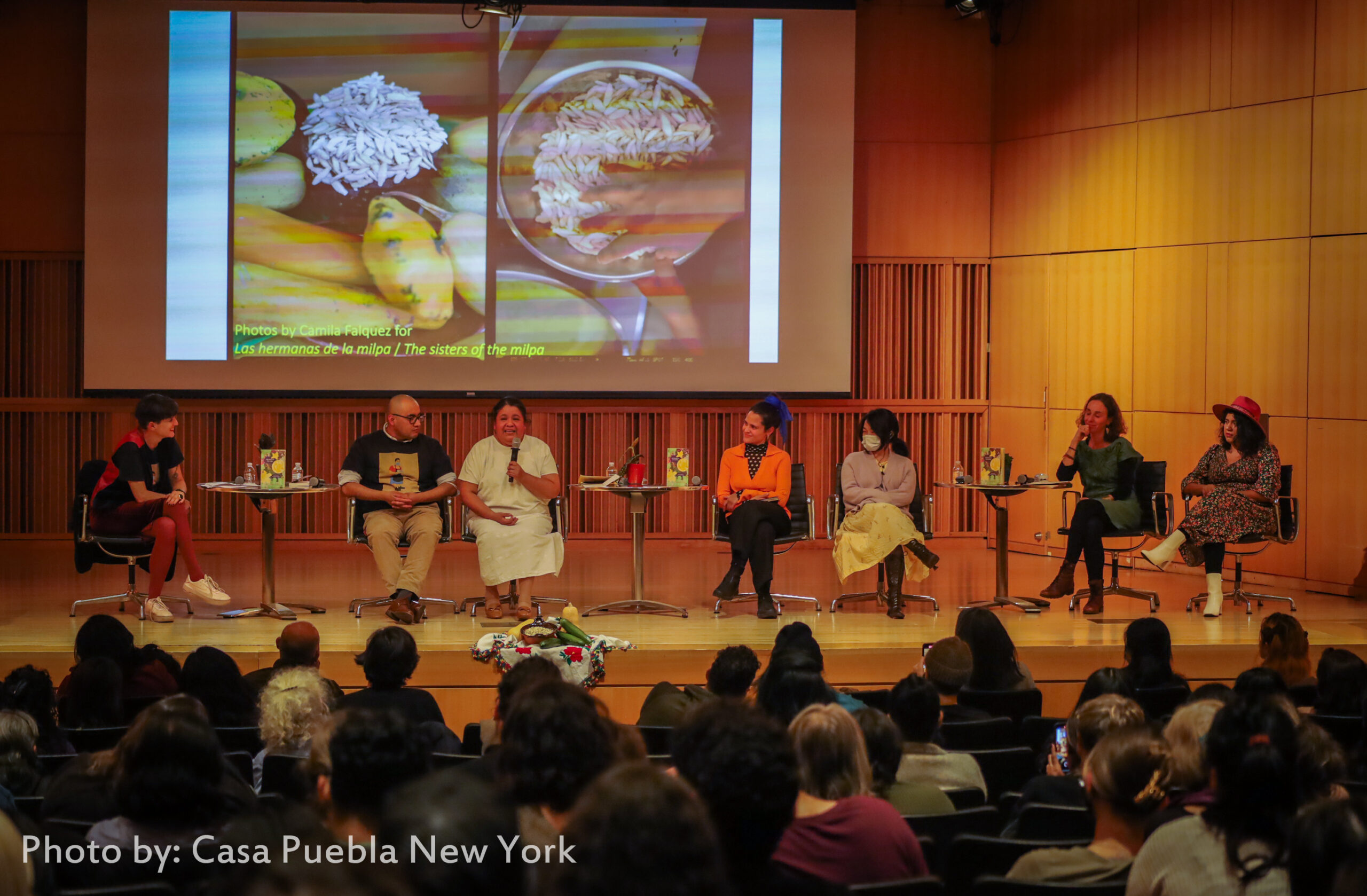
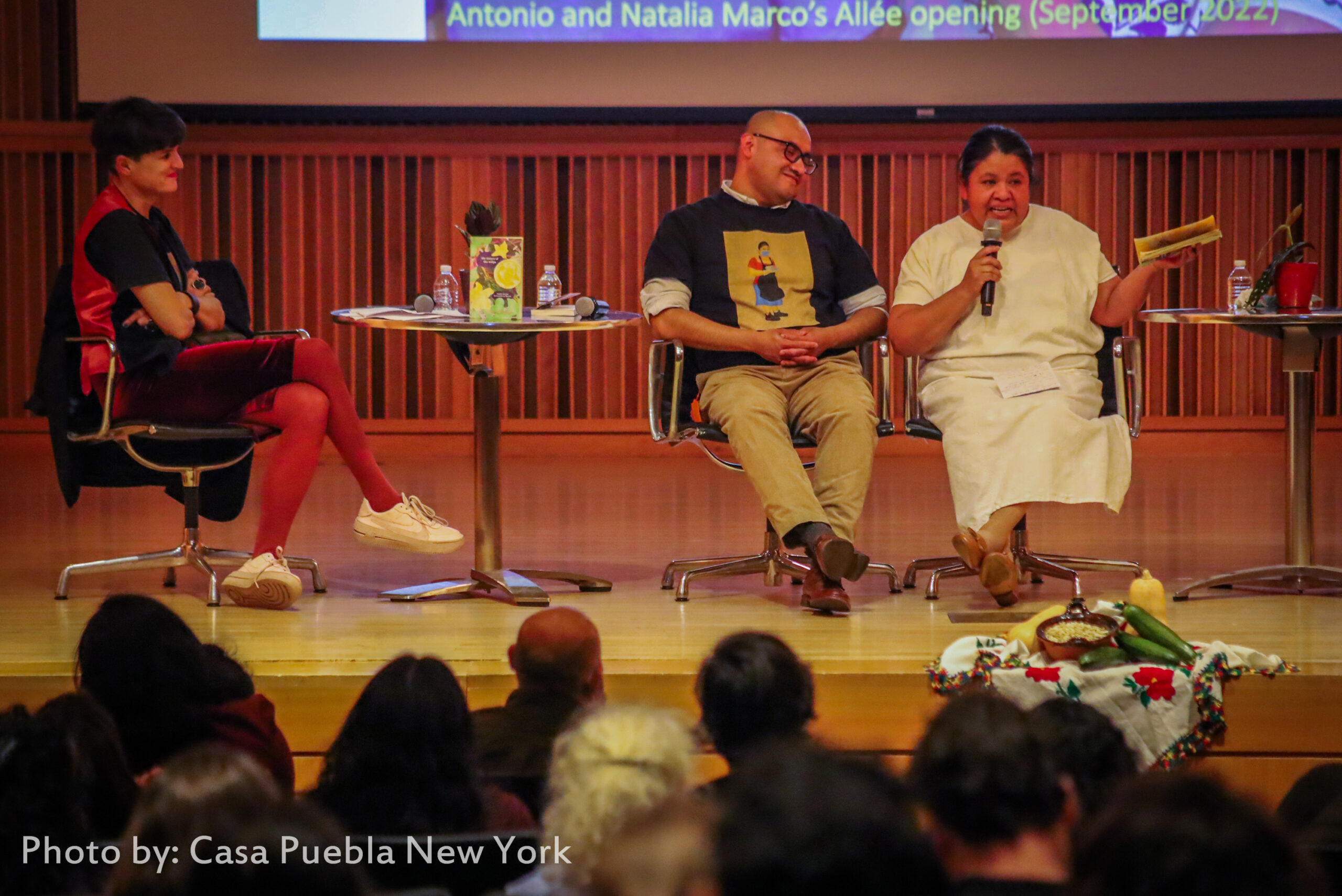
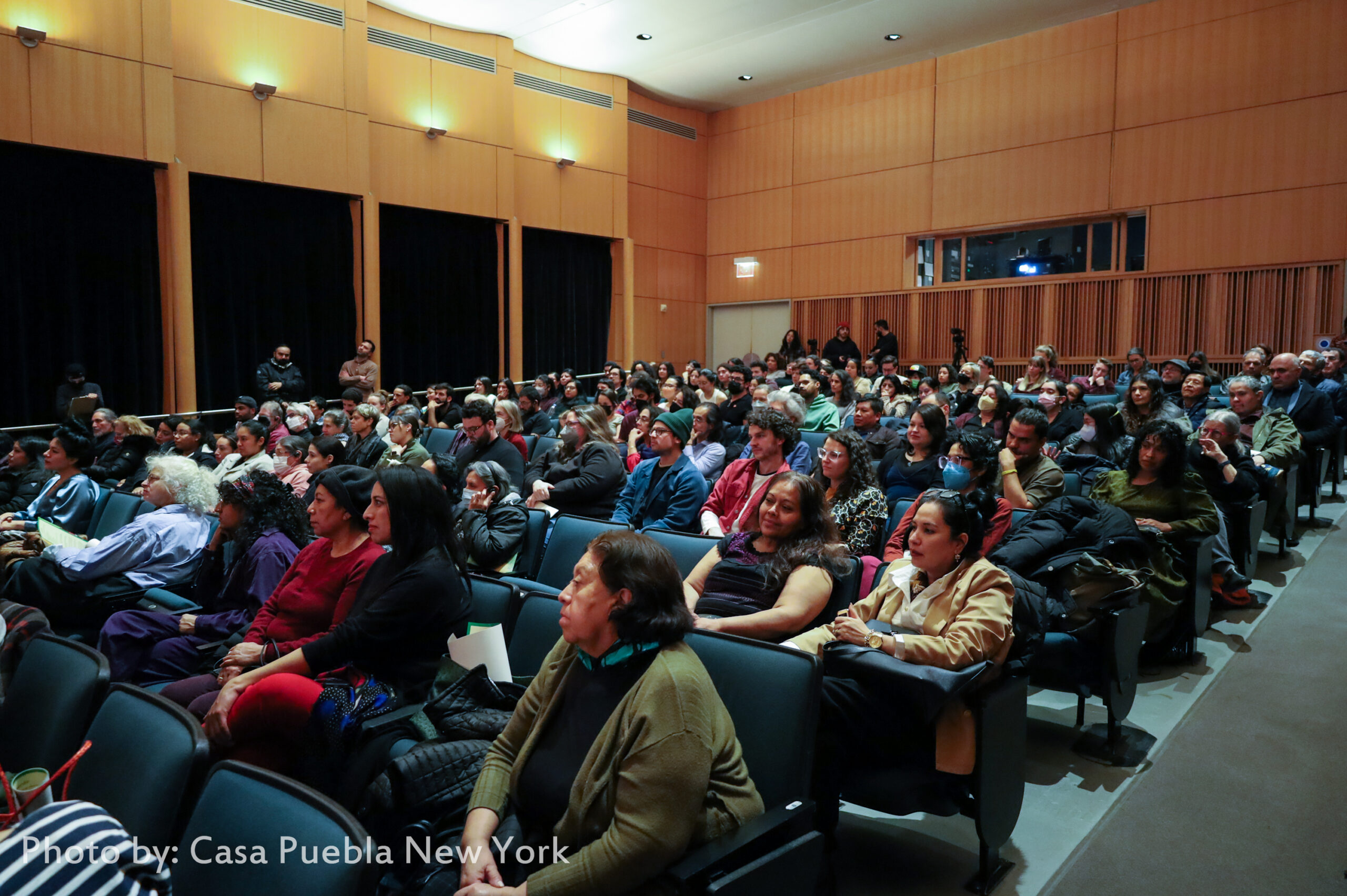
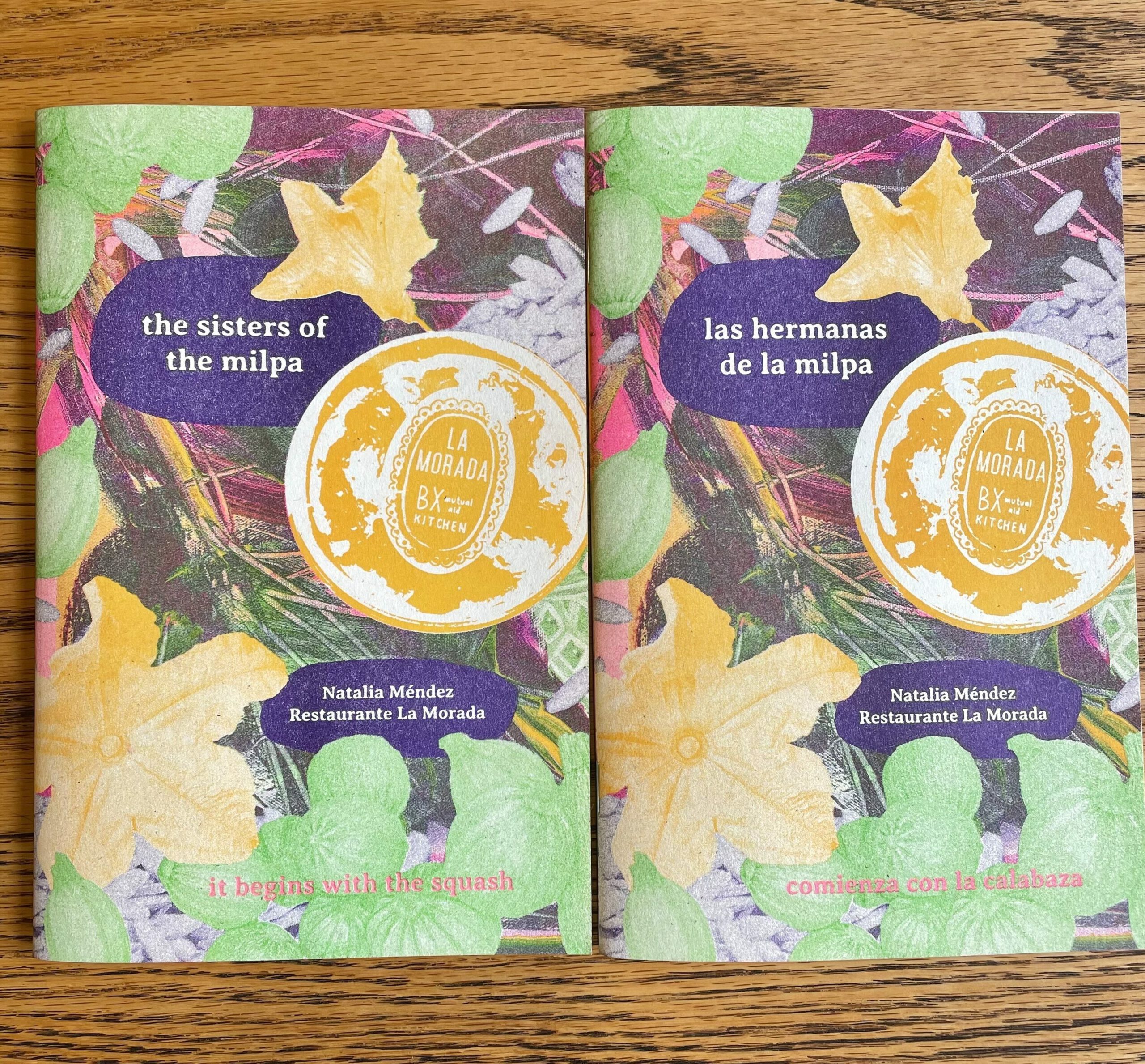
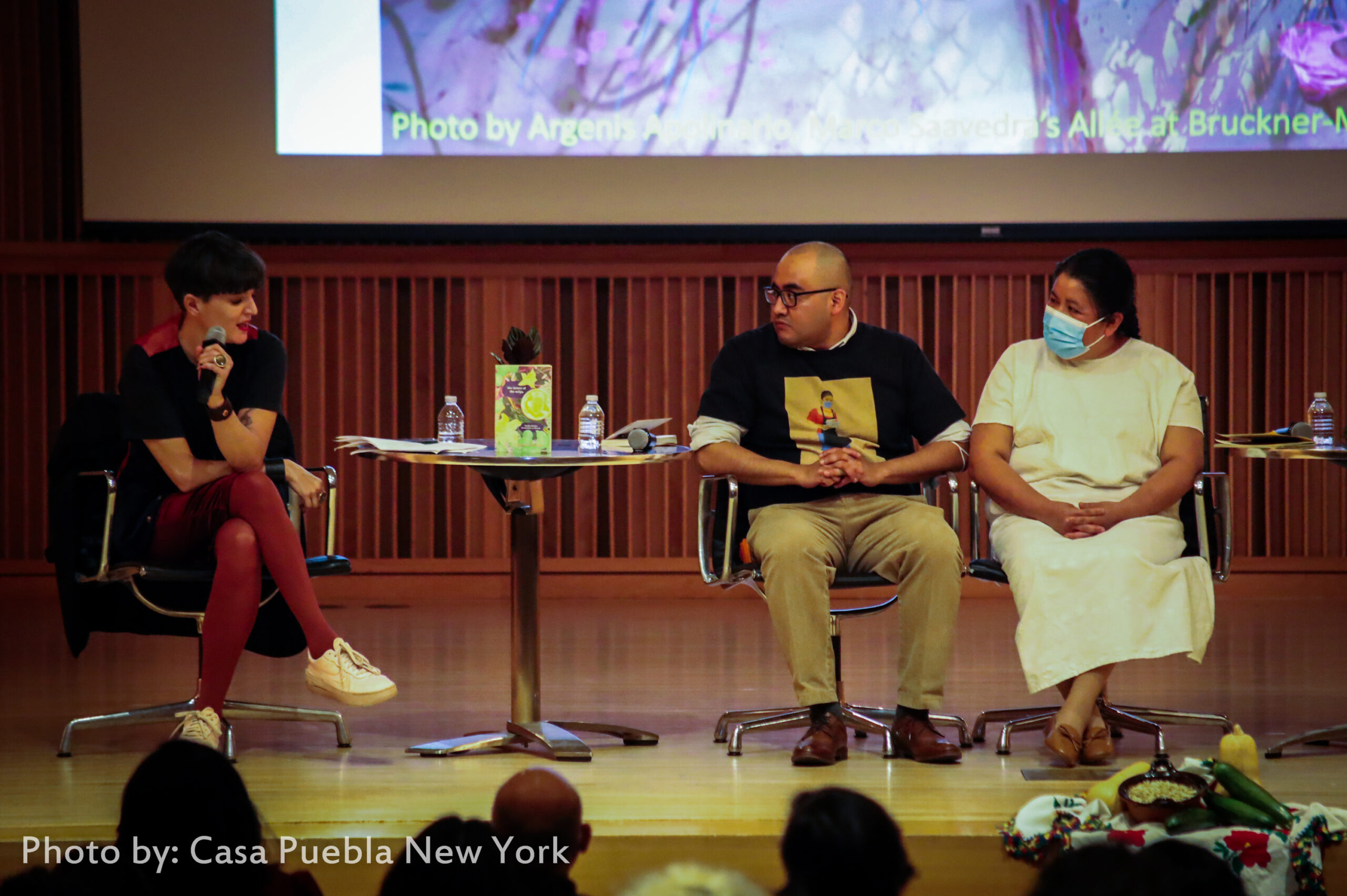
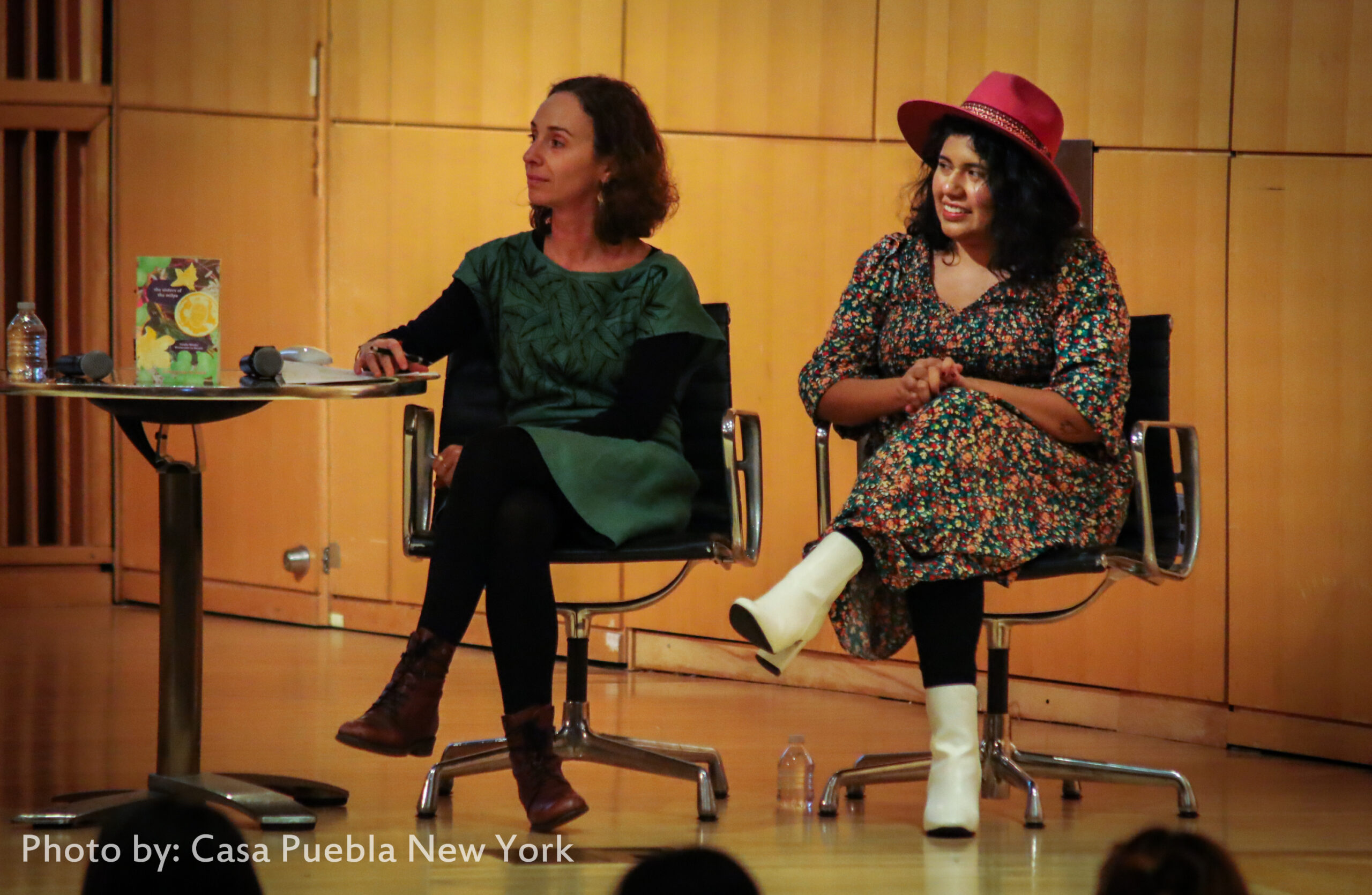
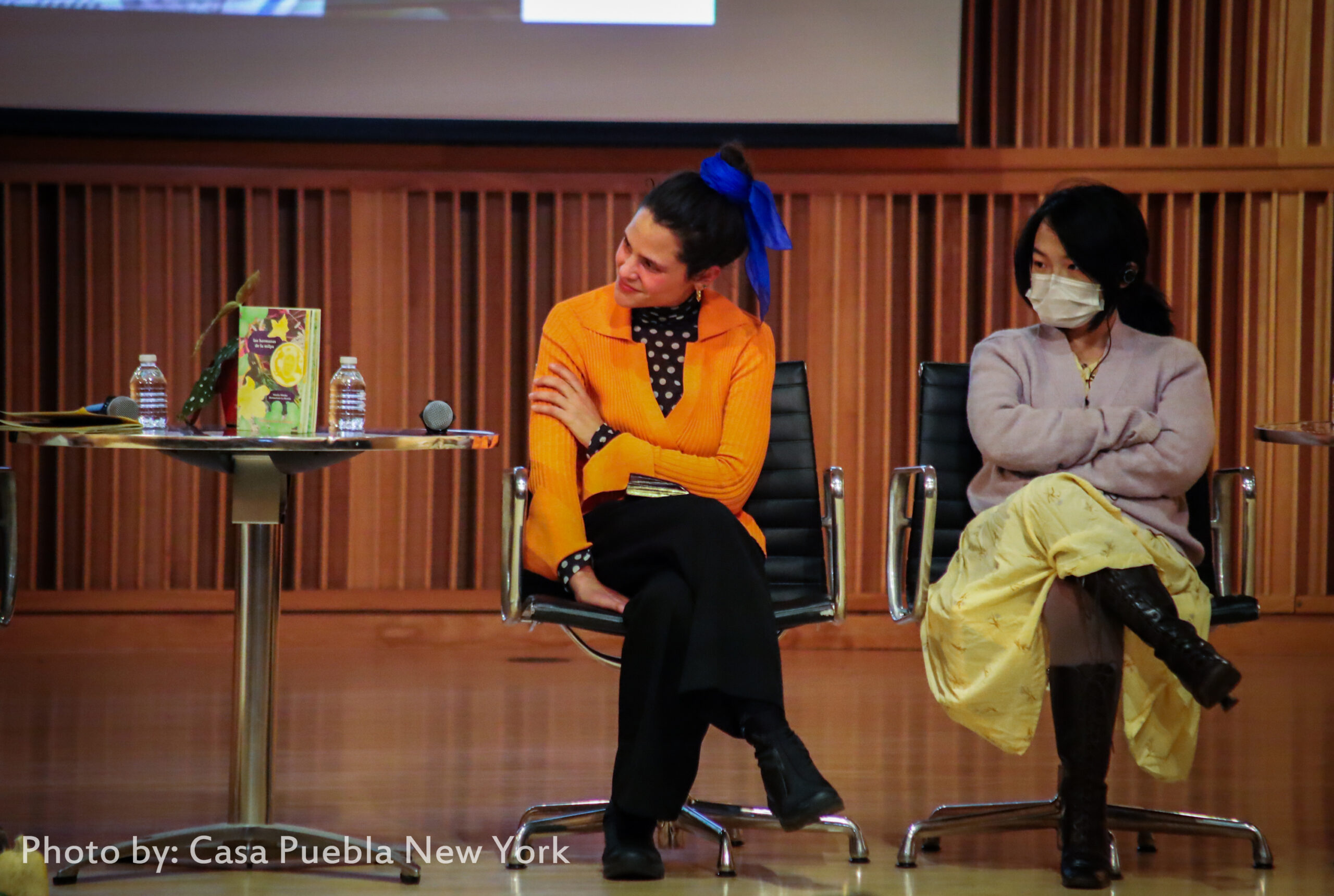
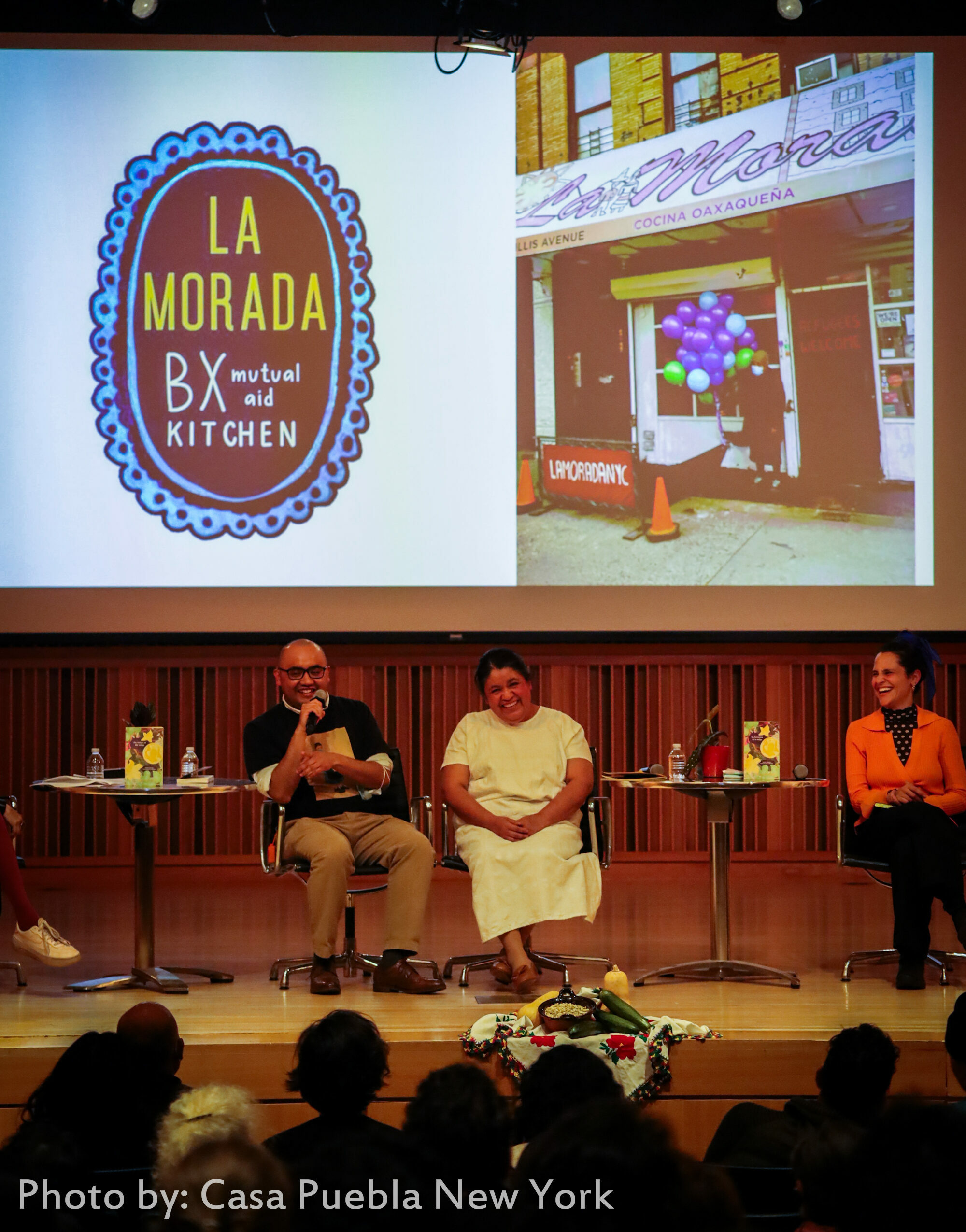

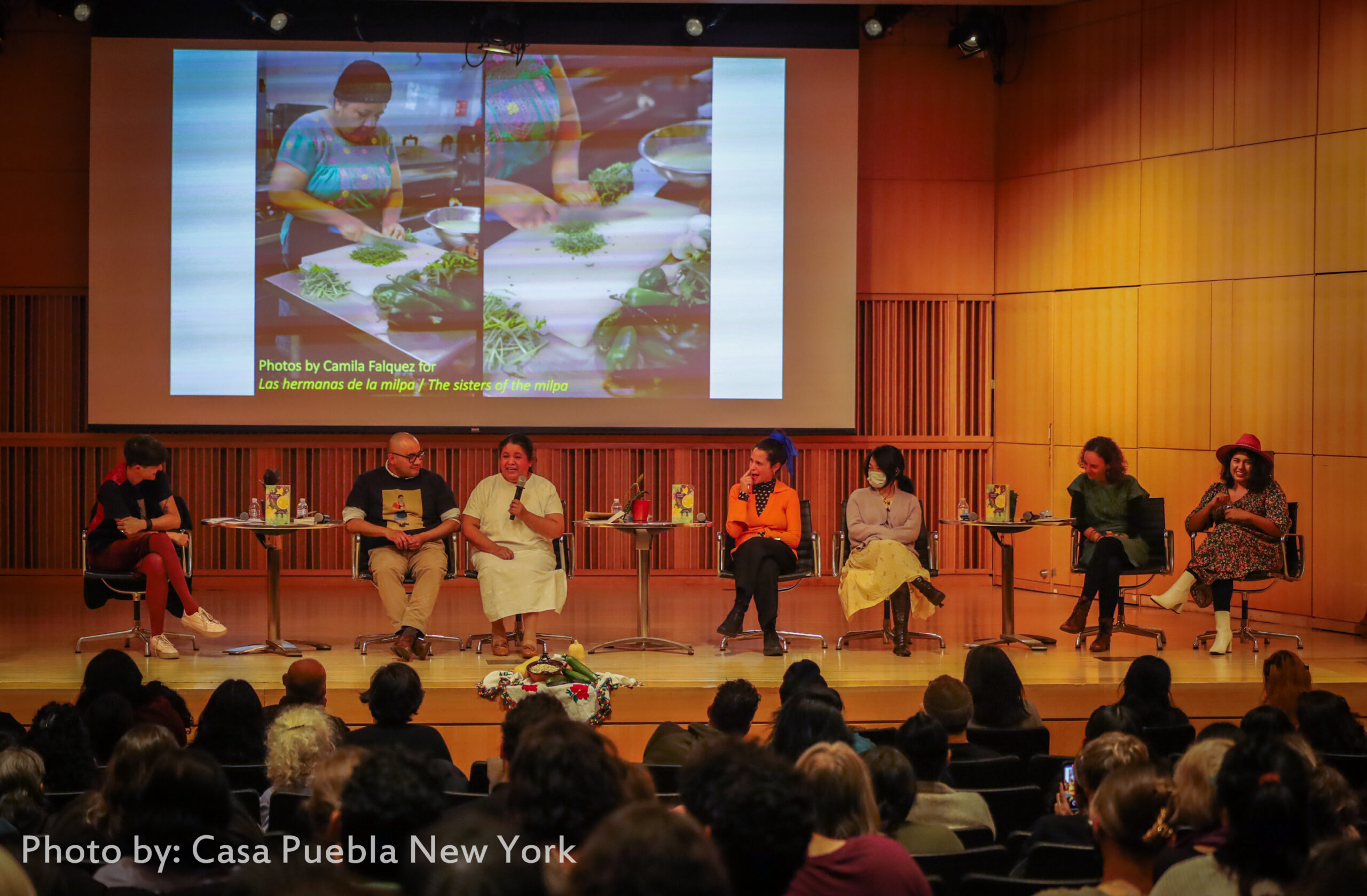

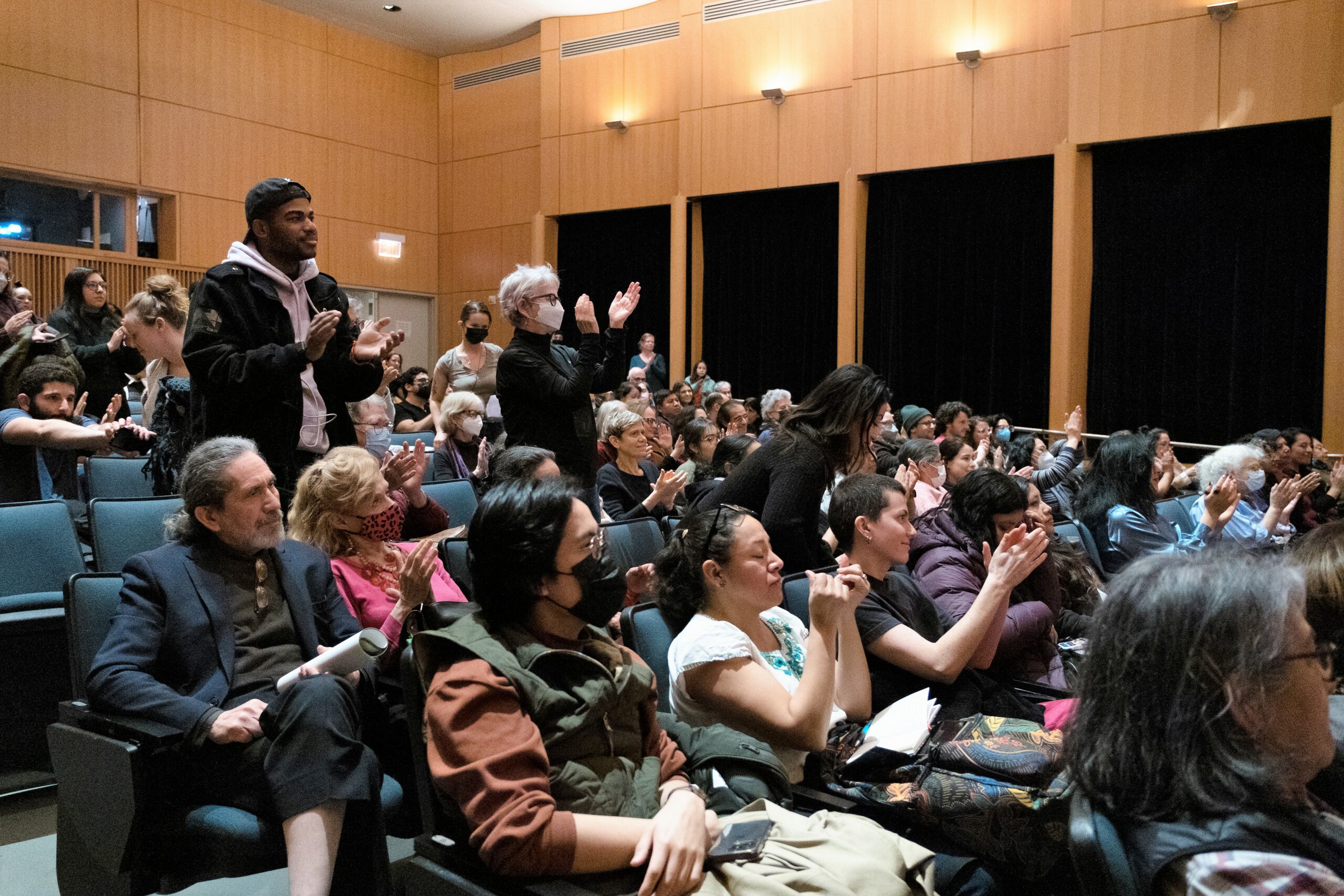
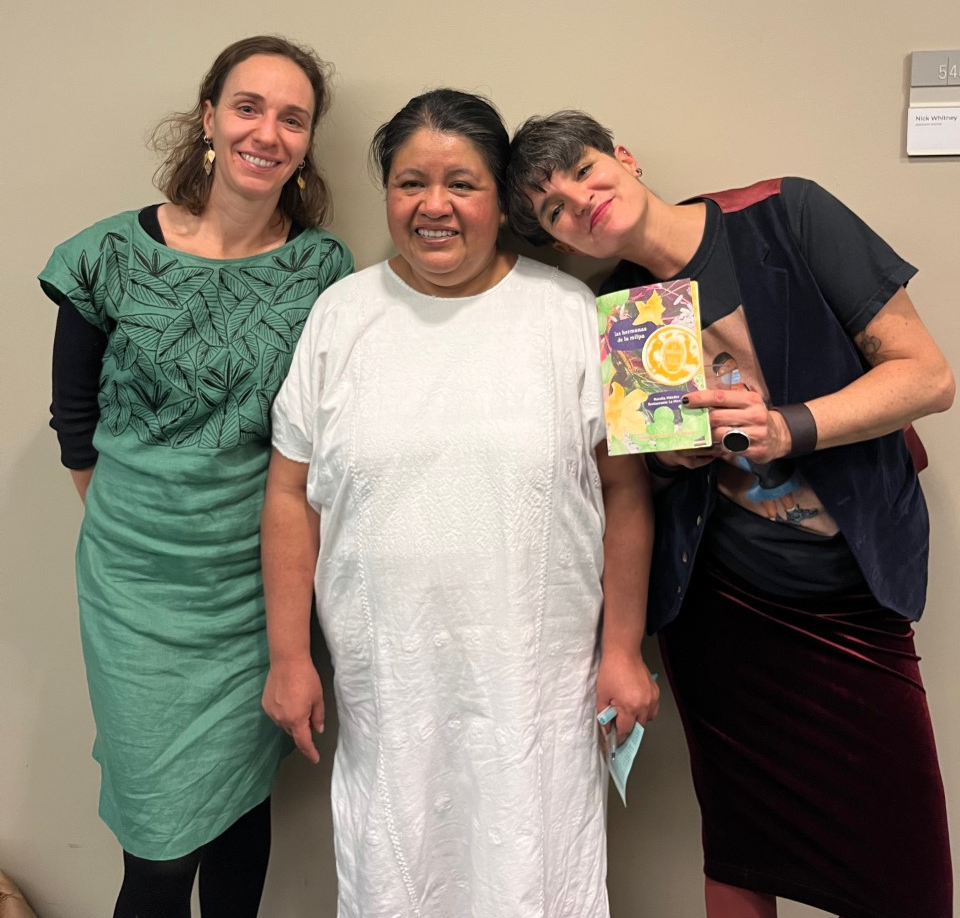
Archives in Common is thrilled to present the CUNY launching of Las hermanas de la milpa: comienza con la calabaza / The sisters of the milpa: it begins with the squash, a bilingual and indigenous (Mixteco) cookbook by chef Natalia Méndez of La Morada restaurant.
Like other initiatives devised by La Morada Restaurant, this book seeks to disseminate indigenous knowledges and practices, and at the same time to conceptualize and expand the ways of doing mutual aid. The book is also, in and of itself, an art project: it includes illustrations by poet, artist and activist Marco Saavedra, photos by photographer Camila Falquez, and has been beautifully designed by Lucky Risograph.
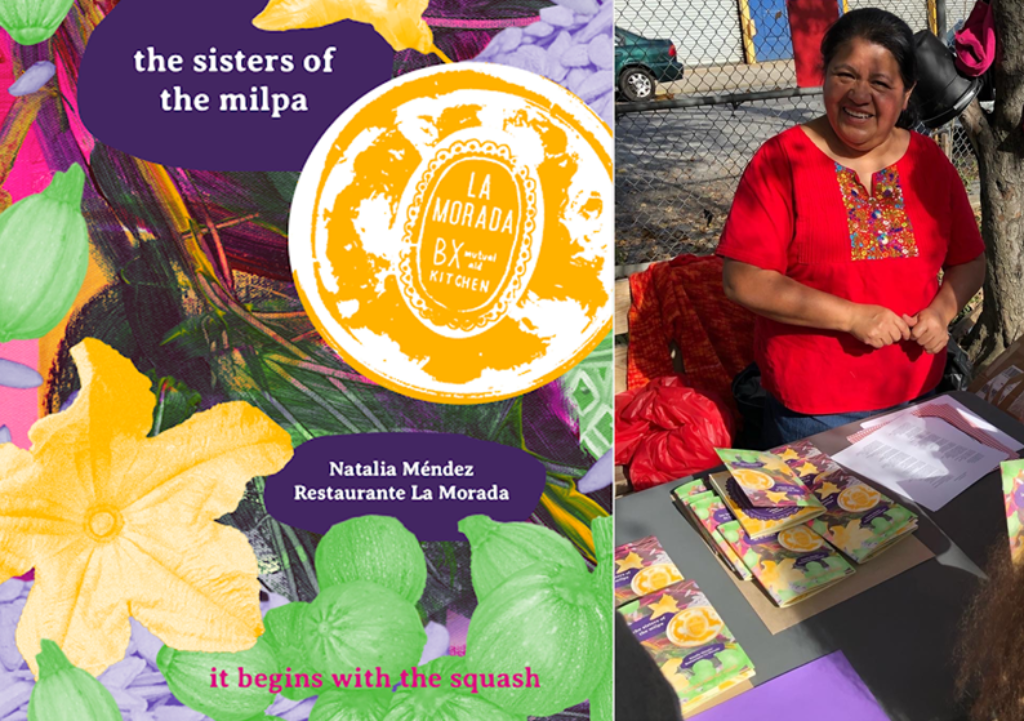
The book launch will include short reflections by all of those who were involved in the making of this collaborative book. Reception to follow with food by La Morada. The book will be for sale at discounted cost. You can also order the book here.
CLICK HERE TO REGISTER AND ATTEND THIS EVENT.
Free and open to the public, this event will be in English and Spanish with English/Spanish interpretation provided. The event will take place in the Elebash Recital Hall at CUNY Graduate Center, 365 Fifth Ave, NYC, which is wheel-chair accessible. Reception to follow with food by La Morada.
ABOUT THE SPEAKERS:
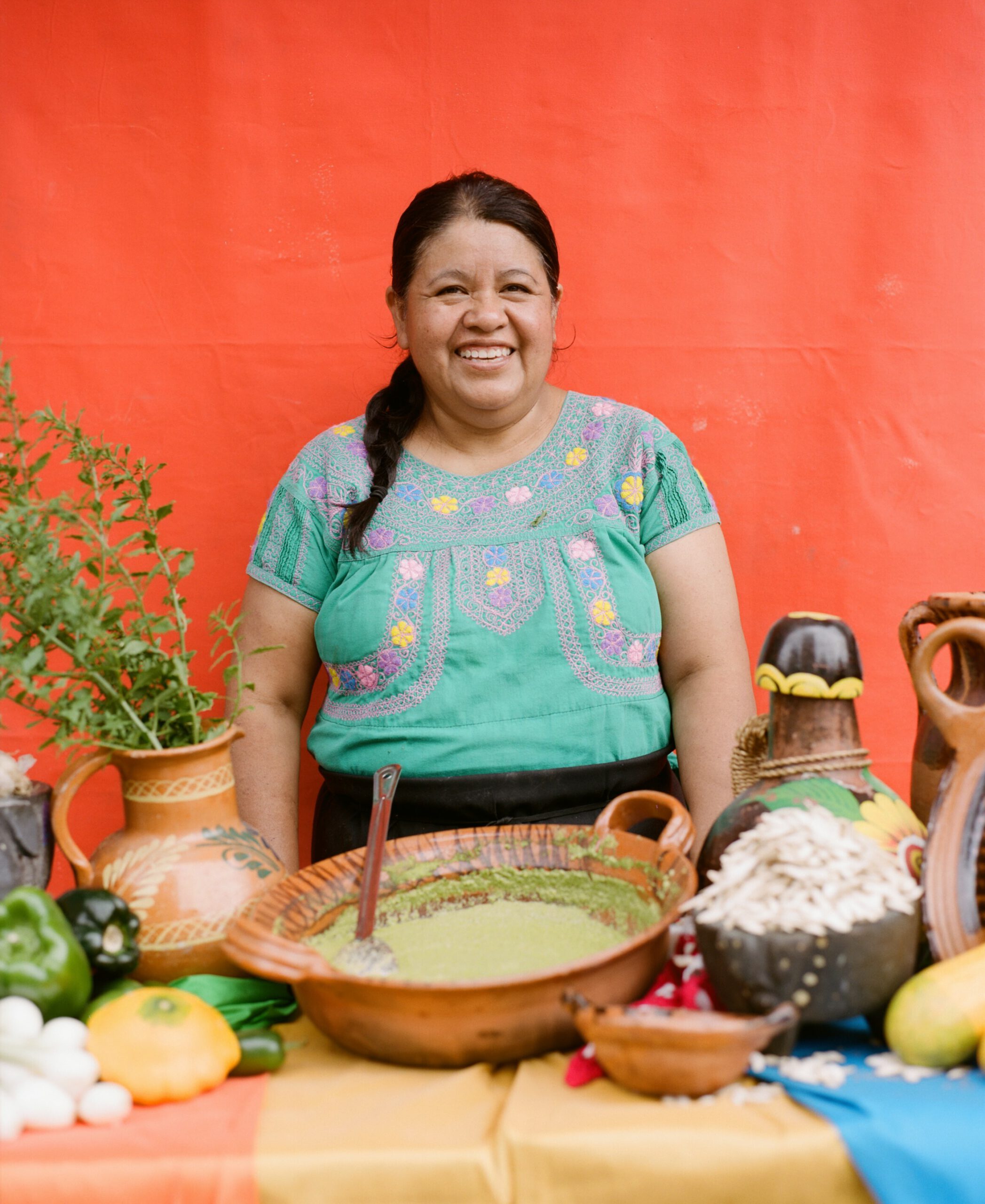
Natalia Méndez is the co-owner and head chef of La Morada, a family-owned and Michelin-listed bearing Oaxacan restaurant and community hub in the South Bronx that seeks to preserve Indigenous Mexican cuisine while creating sanctuary, family and community for all who enter its doors. Méndez is one among a long line of curanderas (healers) and applies her knowledge of ingredients’ nutritional and healing properties to develop her cuisine. True to the saying, “donde come uno comen dos (where there is enough food for one, there is enough for two),” she welcomes everyone into La Morada, through which she also connects with New York City Indigenous women in the struggle for immigrant rights, human rights, Indigenous rights and food justice. After her family battled its own wave of COVID-19 at the beginning of the pandemic, Méndez transformed La Morada into a soup and mutual aid kitchen, providing 1,000 meals daily for several weeks, and later, 650 meals a day to members of a community in need. Méndez and her family not only distributed food aid in the short term, but also seek to reclaim land and utilize community gardens and farms for their ingredients so that more neighbors may have access to food production and farming. She and her family engage in the pedagogical project of passing on transgenerational information about Indigenous foodways and good food as medicine–as a source not solely for health but also for healing. Her cooking has received numerous awards and recognition and is favored by top chefs. Méndez received the Three Kings Medal by El Museo del Barrio in 2017 for her significant contributions to the Latinx community and a Doctor of Humane Letters from Lehman College in 2022.
La Morada has received glowing reviews from The New York Times, The New
Yorker,New York Magazine and is a three-time James Beard finalist.
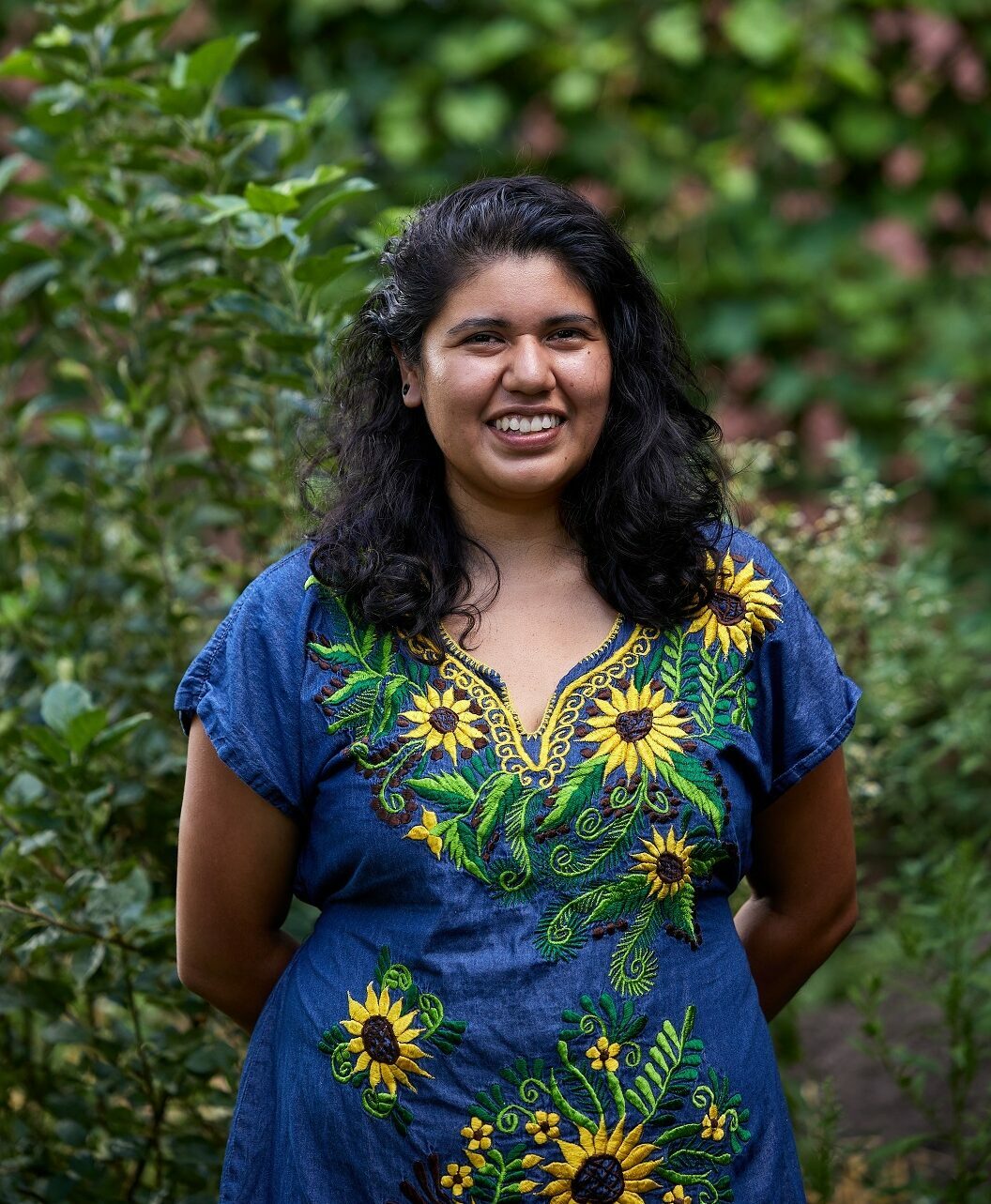
Carolina Saavedra is an educator at Stone Barns Center, garden steward of Bruckner Mott Haven Community Garden, and sous chef at La Morada, a restaurant and activist center founded by her family in the South Bronx. Carolina’s work is nourished by ancestral knowledge, traditions and practices derived from her indigenous Mixtec town in San Miguel Ahuehuetitlán, Oaxaca, Mexico. Carolina graduated with honors from the International Culinary Center (ICC). Additionally, she has represented the U.S. at multiple gastronomy events in Mexico, and has taught at leading food and cultural institutions including NYBG, The Brooklyn Museum, and The Metropolitan Museum of Art and is one of TimeOut 2021 NYC women of the year awardee.
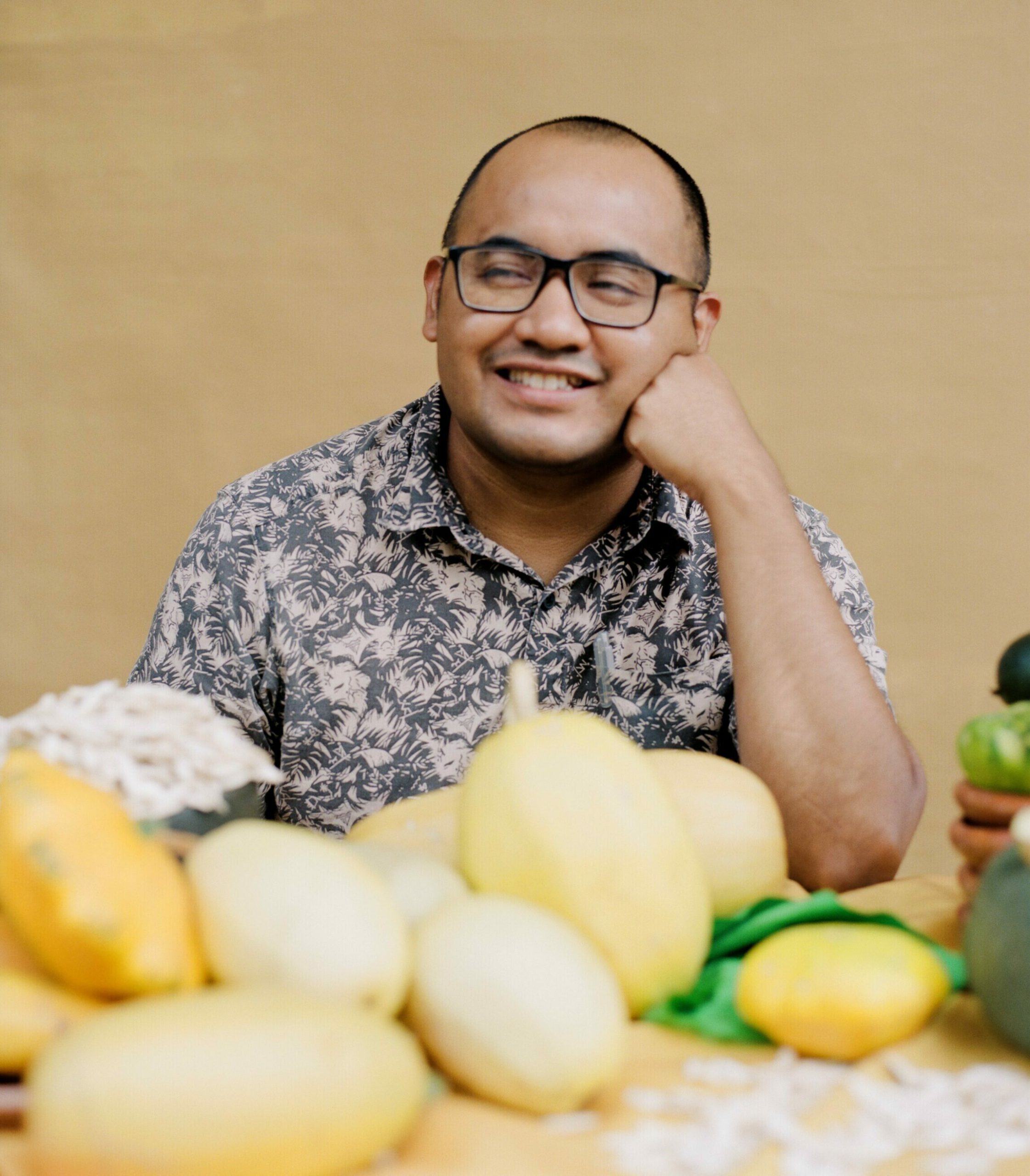
Artist & host Marco Saavedra was born in San Miguel Ahuehuetitlán in the indigenous Mixteca Baja region of Oaxaca. Due to poverty, hunger, and free trade agreements, his family was displaced into the United States. He has fought deportations, reported on immigration abuses, and secured the release of dozens of detainees that were denied due process, depicted in the Sundance award-winning docu-thriller The Infiltrators and Eclipse of Dreams (2007). In 2021, he was granted political asylum, setting a precedent for immigrant advocates who face disappearance and death for their work in Mexico. During the pandemic, his family’s Michelin-listed Oaxacan restaurant, La Morada, began a mutual aid kitchen where they have been providing 650 free community meals daily. In collaboration with Ale Delano’s haikus Marco is adding his allée painting series to build a treescape for 2023 and on.
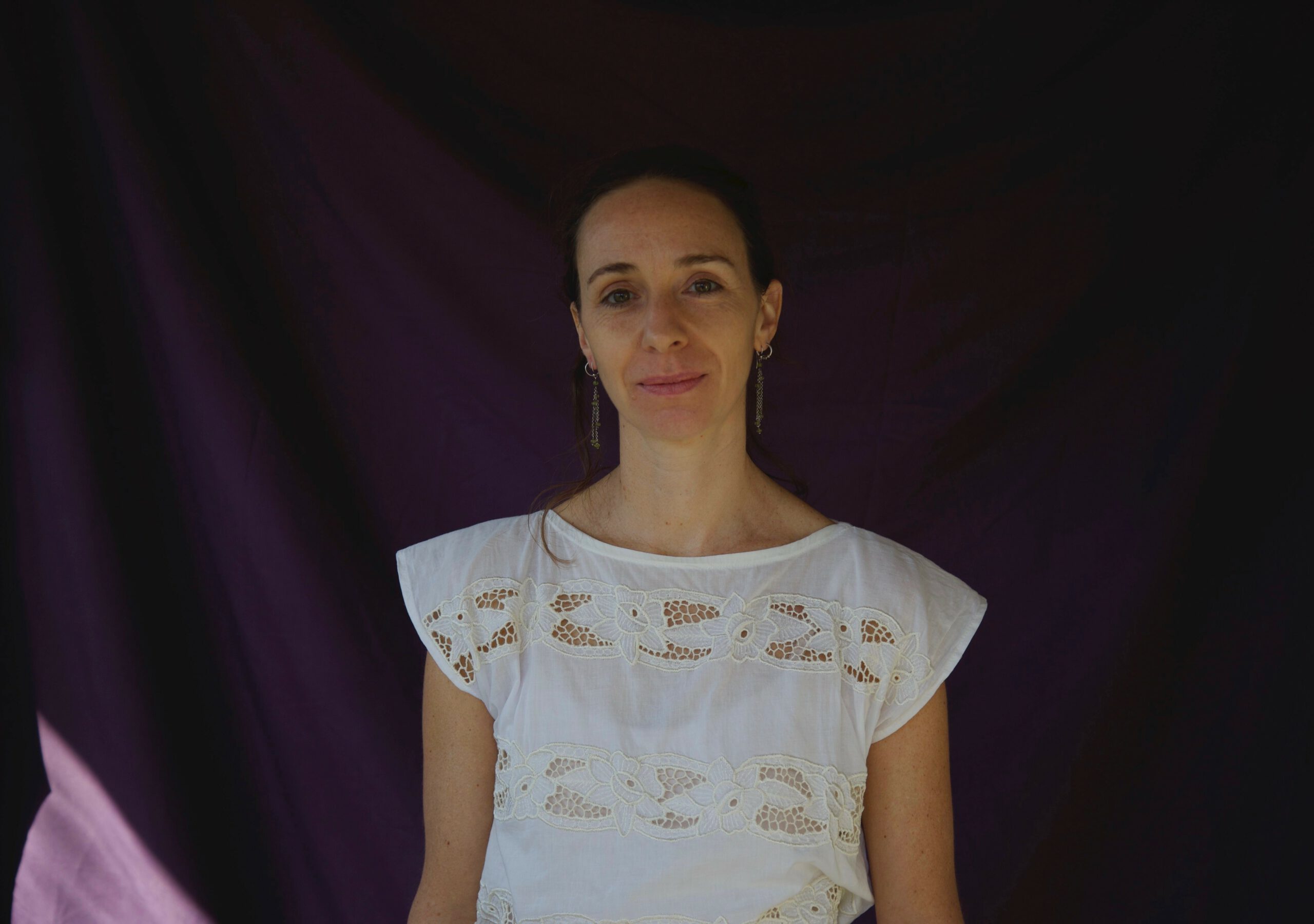
Alexandra Délano Alonso is Associate Professor of Global Studies at The New School and the current holder of the Eugene M. Lang Professorship for Excellence in Teaching and Mentoring. She received her doctorate in International Relations from the University of Oxford. Her research focuses on diaspora policies, migration in the Central America-Mexico-US corridor, the politics of memory, and migrant-led practices of resistance and solidarity from a transnational perspective. She is the author of Mexico and its Diaspora in the United States (2011), From Here and There (2018) and the poetry collection Brotes (2021). She is also co-director of the short film Fragmentos (2021). Traversing academia, activism, art and poetry, her works seeks to create a dialogue that centers transformation and justice.
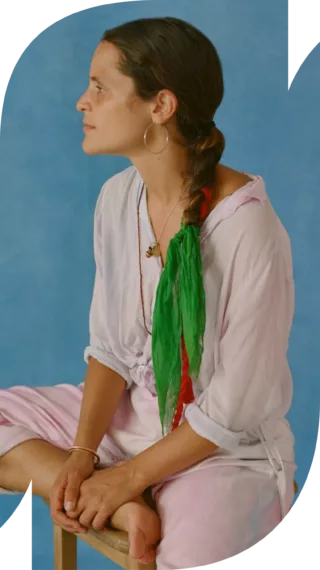
Camila Falquez is a photographer and visual artist, based in New York City. Born in Mexico and raised in Spain, Colombian photographer Camila Falquez creates photographs that harness the traditions of fashion and portrait photography to honor a contemporary spectrum of social and gender diversity. Channeling the conventions of surrealism and a painterly color palette, she creates an empowering vision that ushers in the narratives of community, humanity, liberation and visibility.
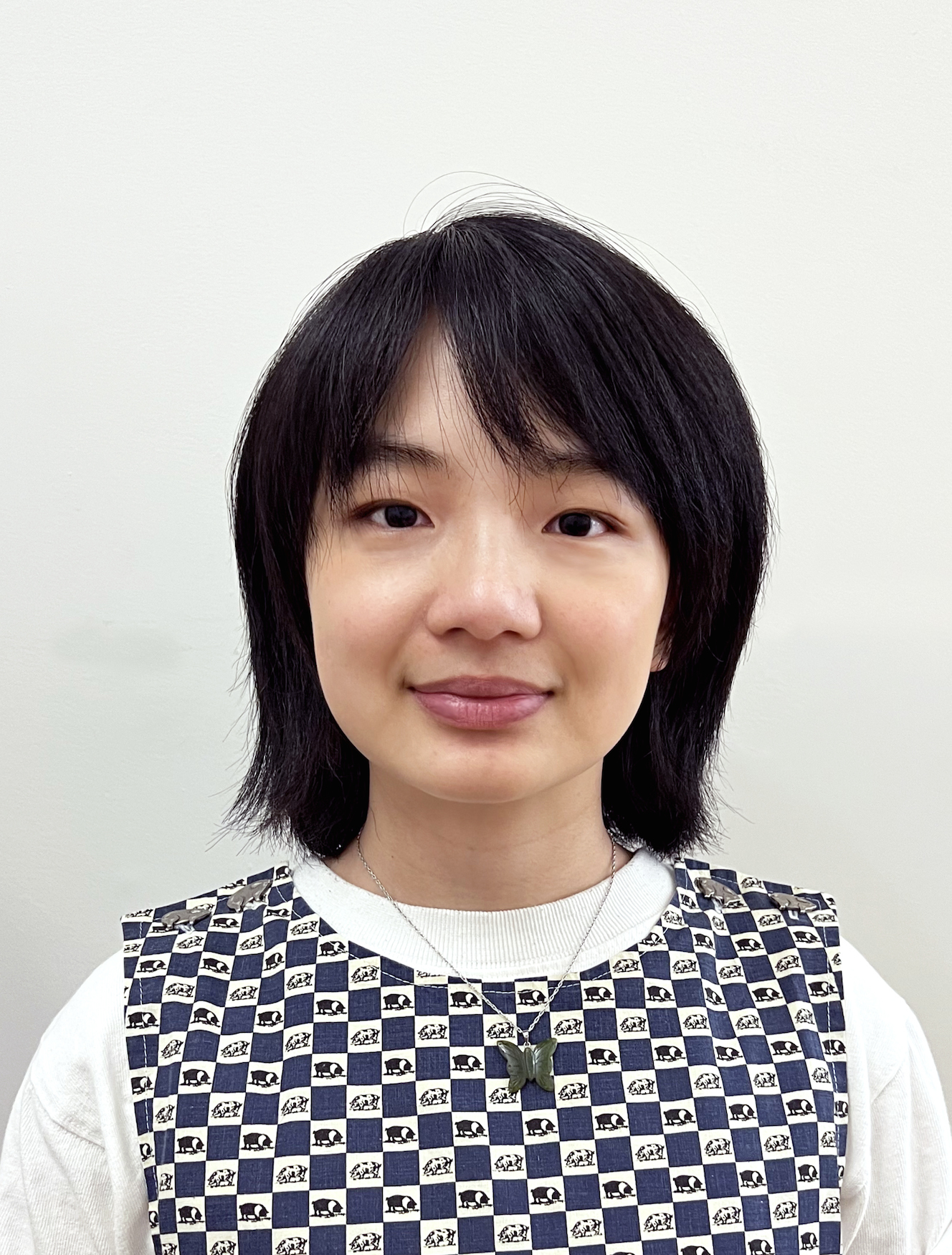
Amanda Chung is an NYC-based graphic designer, illustrator, fabricator, and co-founder of lucky risograph, a risograph printing press operating from Dumbo, New York who work with local and international creators to reinterpret risograph printing through art books, zines, prints, and community projects. She is currently a visiting professor at Parsons The New School. At lucky risograph, she often runs workshops and works closely with artists and clients to bring their books and prints to life.
This event is sponsored and organized by the Archives in Common: Migrant Practices/Knowledges/Memory project led by faculty leader Ángeles Donoso Macaya as part of the Seminar on Public Engagement and Collaborative Research from the Center for the Humanities at the CUNY Graduate Center, and co-sponsored byFutures Initiative, Social Practice CUNY, the DGSC-Mexican Studies Group, andthe Ph.D. Program in Latin American, Iberian, and Latino Cultures at the CUNY Graduate Center.
Participants
Related Events
Book Launch & Conversation
This is an Archive in Common: The Book of Beans by chef Natalia Méndez
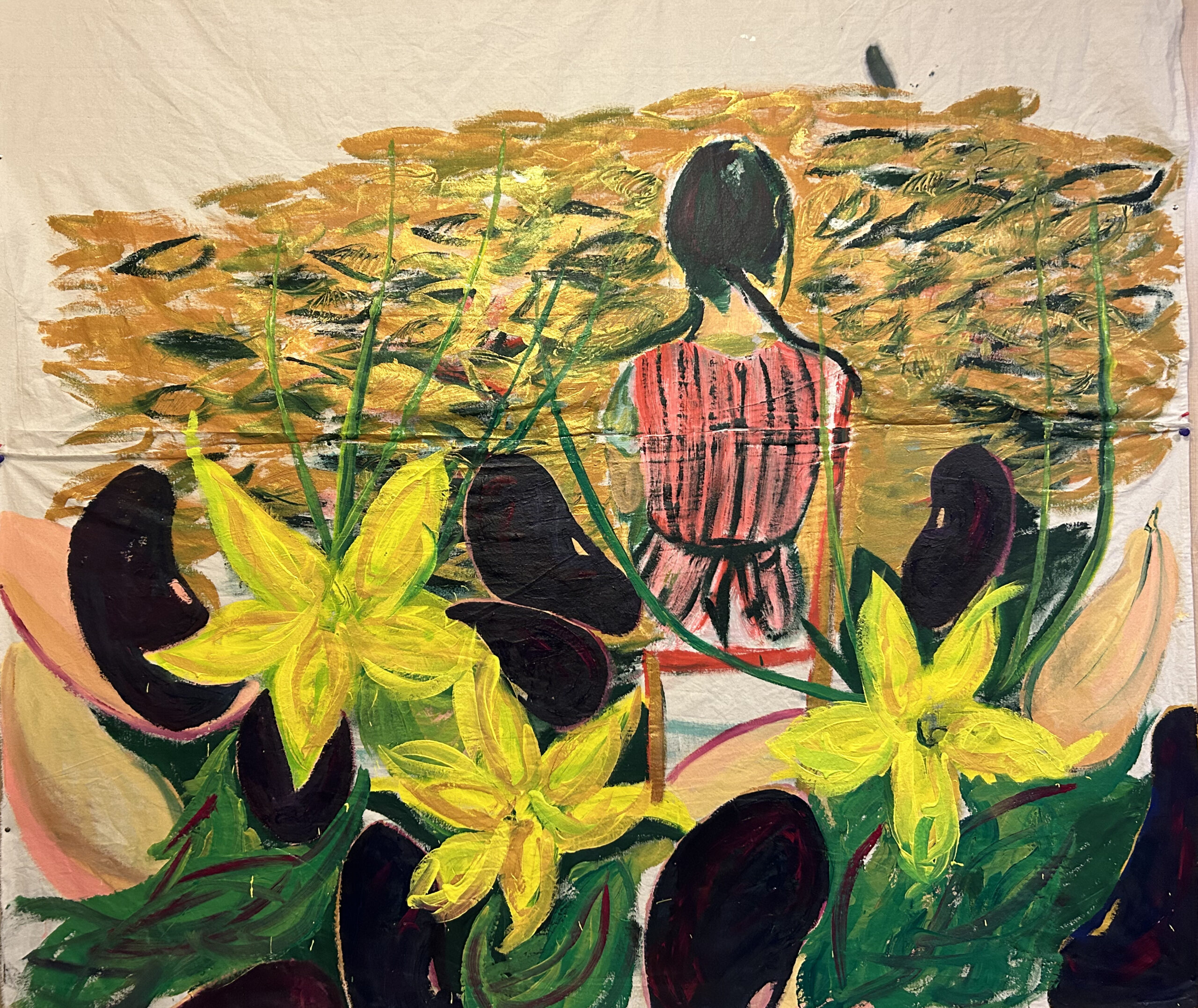
Book Launch
POSTPONED: Book Launch: New Narratives on the Peopling of America
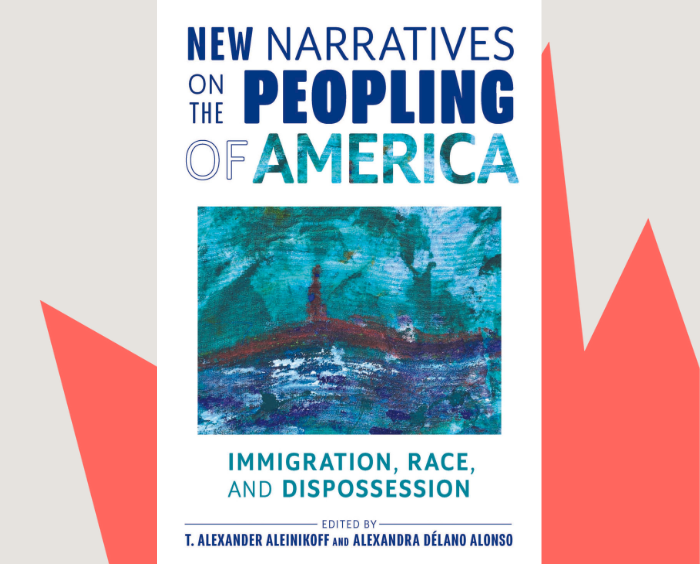
Book Launch
Celebrating The Sisters of the Milpa: Longing for the Corn / Celebrando Las hermanas de la milpa: la añoranza del maíz by chef Natalia Mendez of La Morada Mutual Aid Kitchen
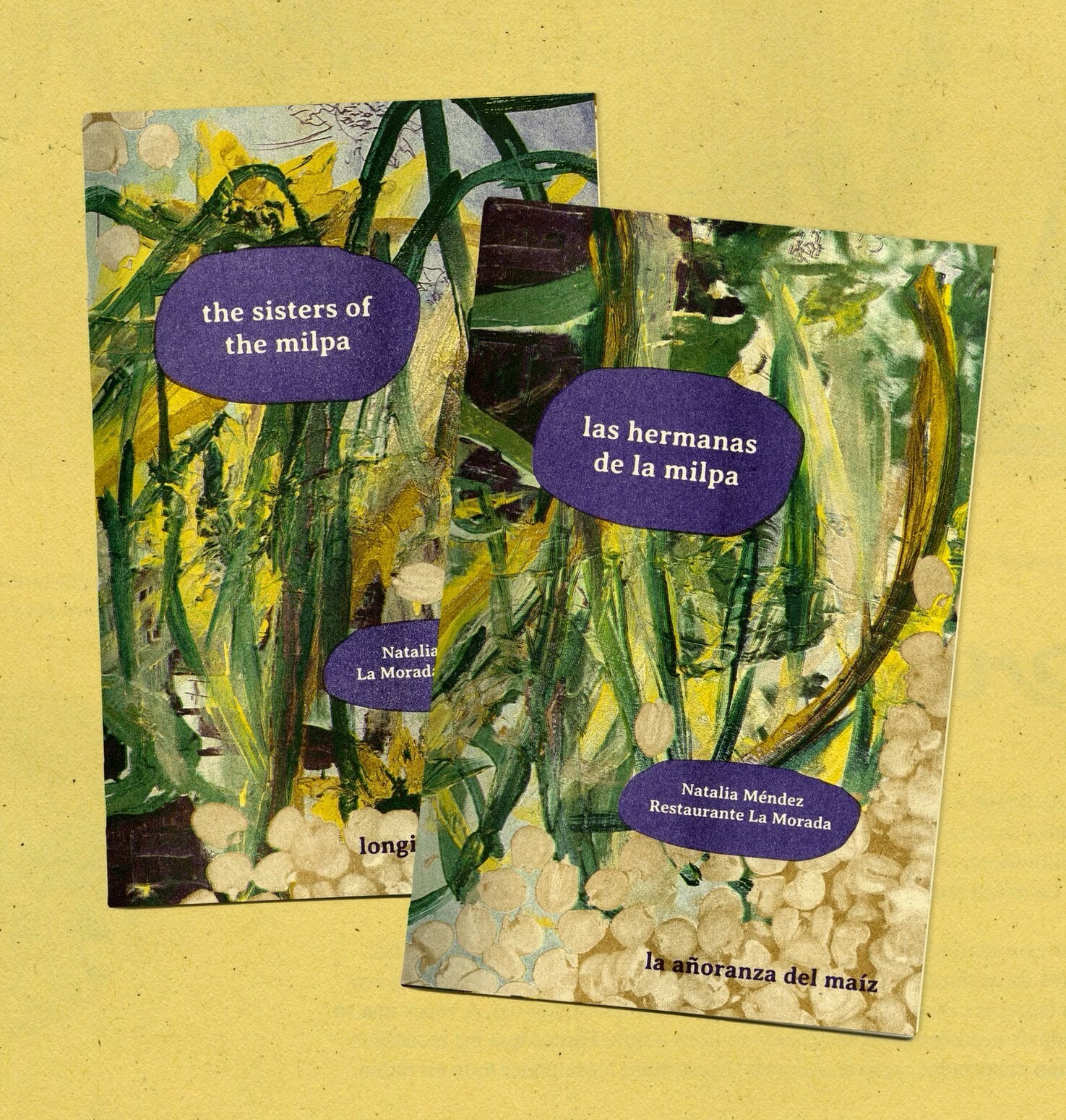
Event
We Want Foods That Tell Our Stories: Reclaiming and Reviewing Indigenous Food Sovereignty with Mariaelena Huambachano
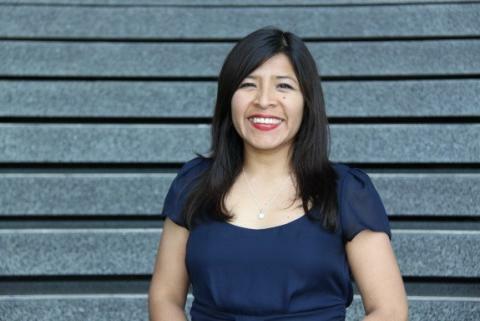
Book Launch & Conversation
Book Launch: Las hermanas de la milpa: comienza con la calabaza / The sisters of the milpa: it begins with the squash
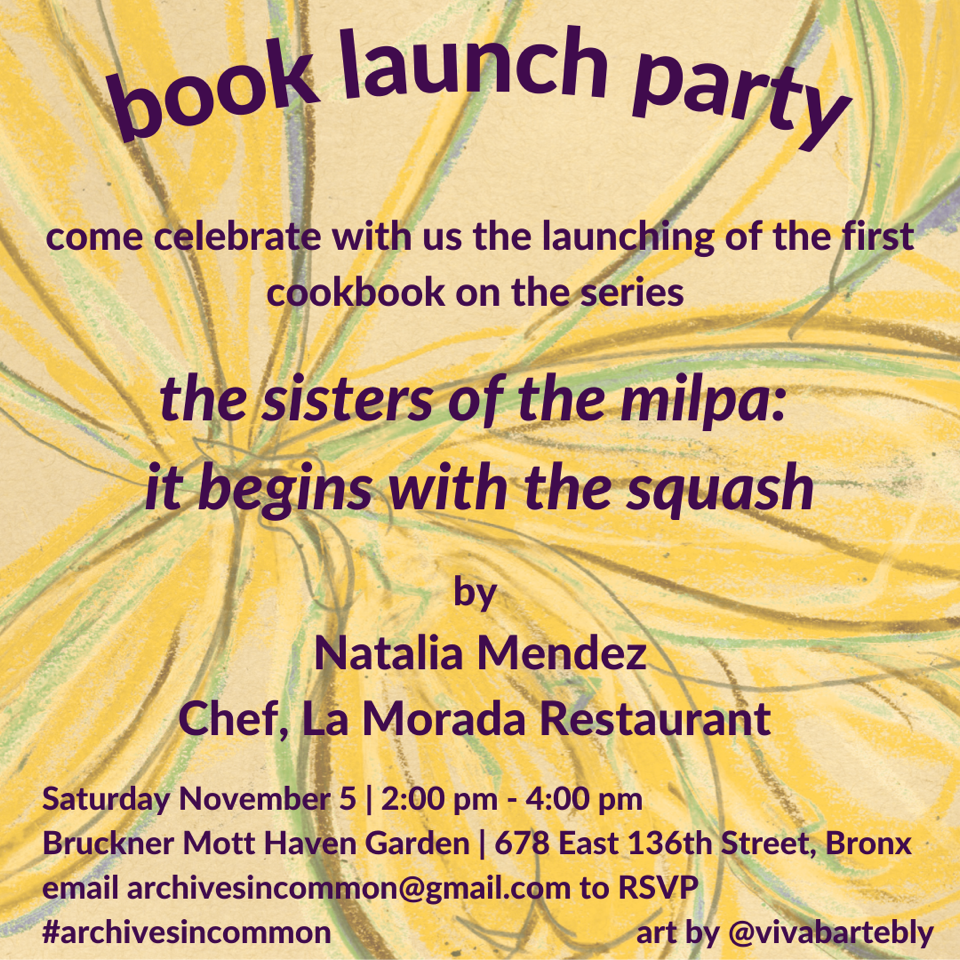
Conversation & Screening
Fighting Back Racism and Food Injustice Thru Green Spaces
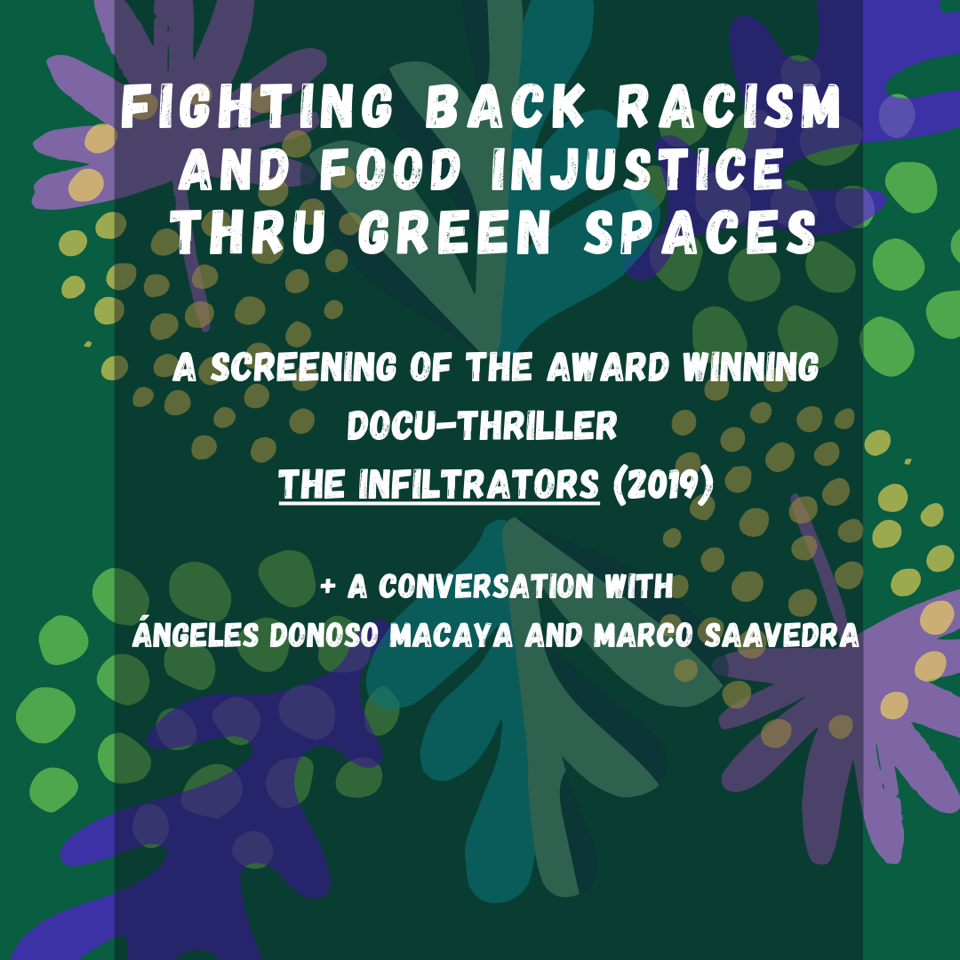
Conversation
The Undocumented-Led Struggle for Freedom: A Conversation with the Authors of Eclipse of Dreams
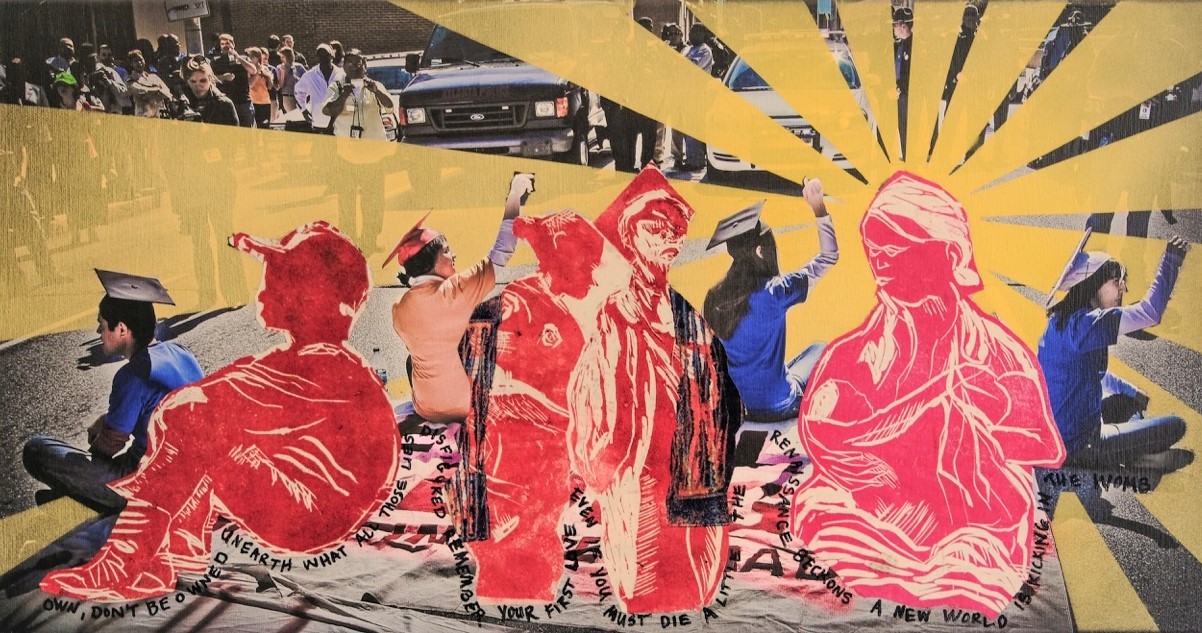
Conversation
Food Justice, Activism, and the Public University: A Conversation
